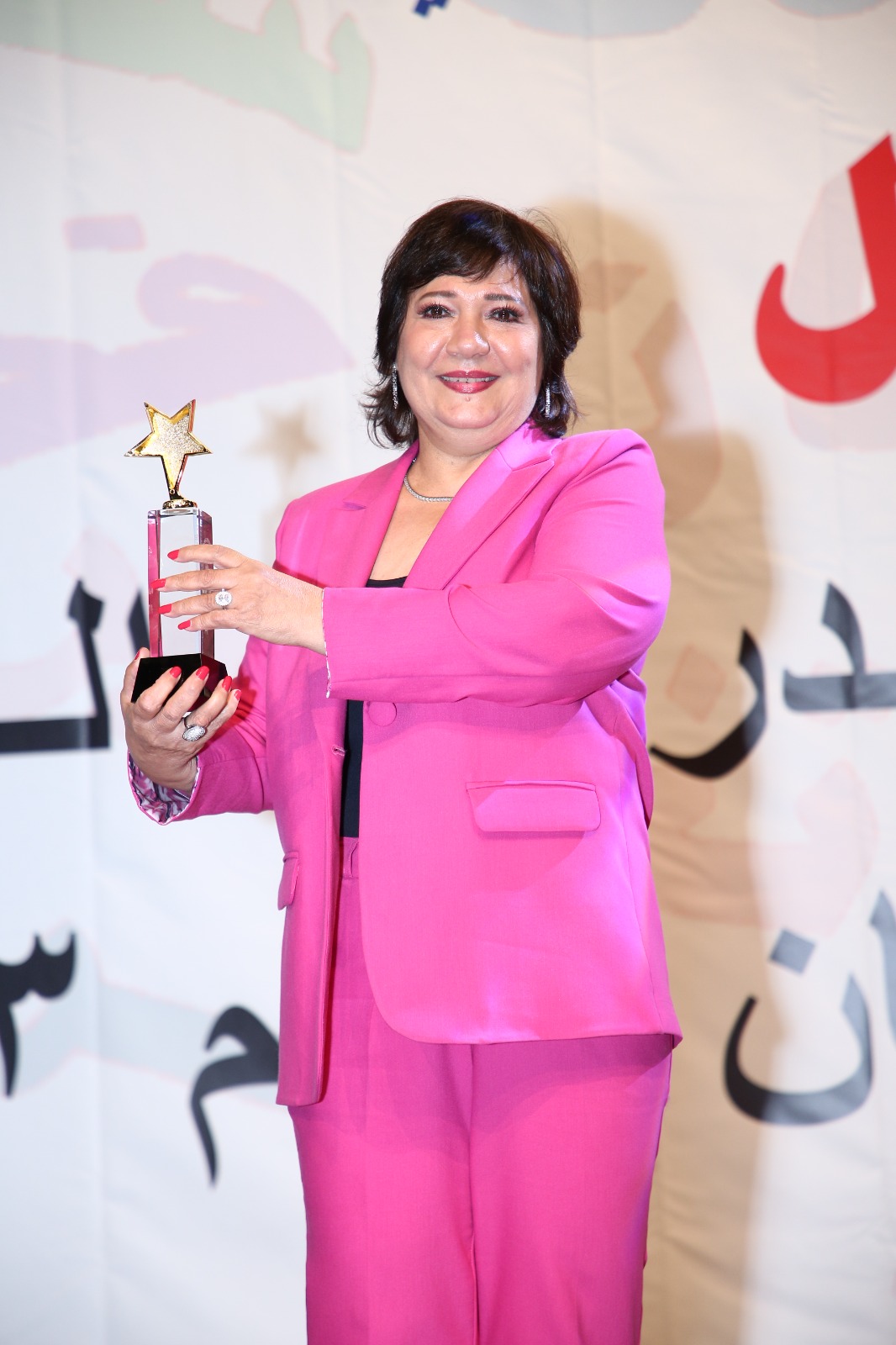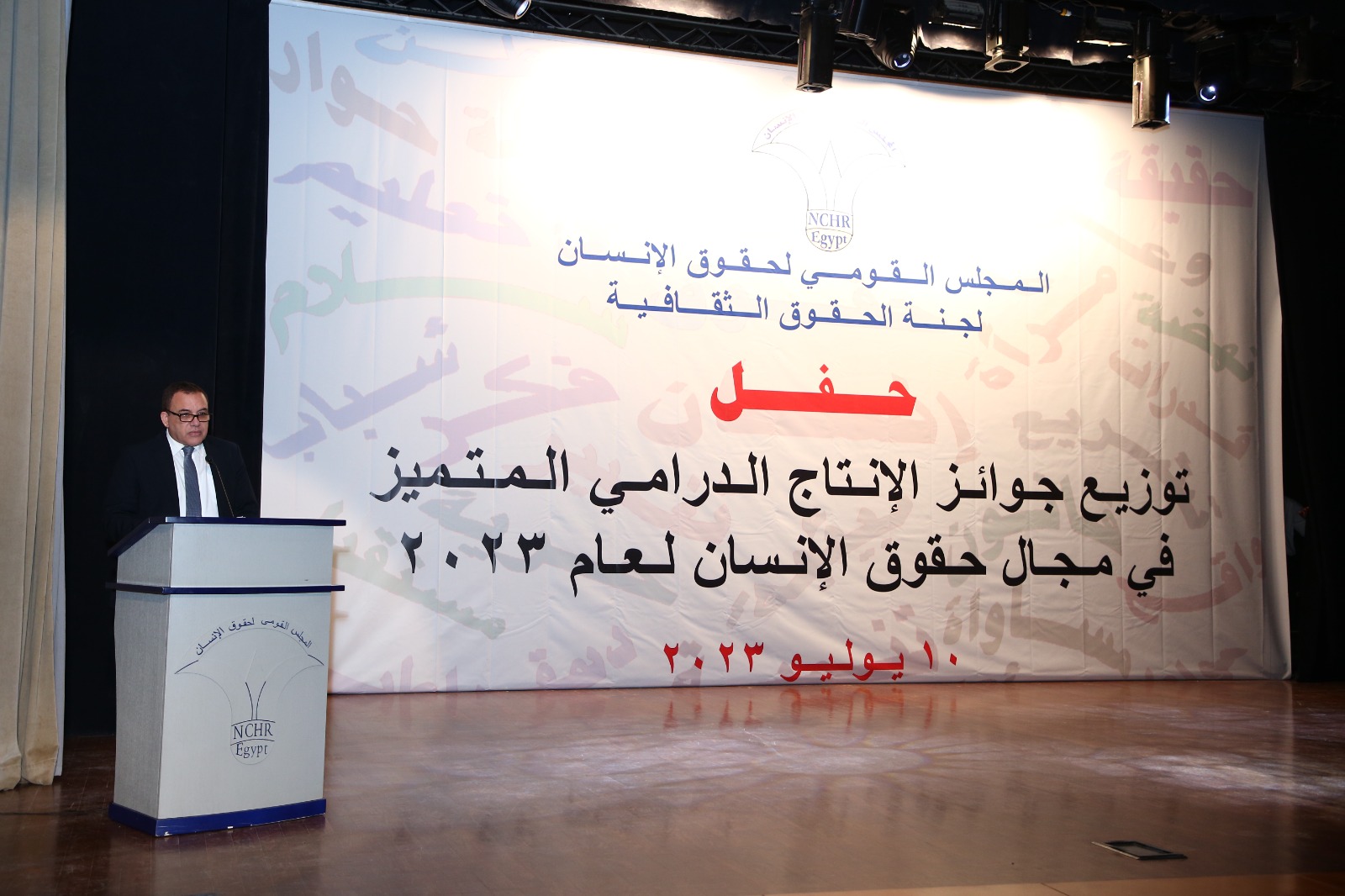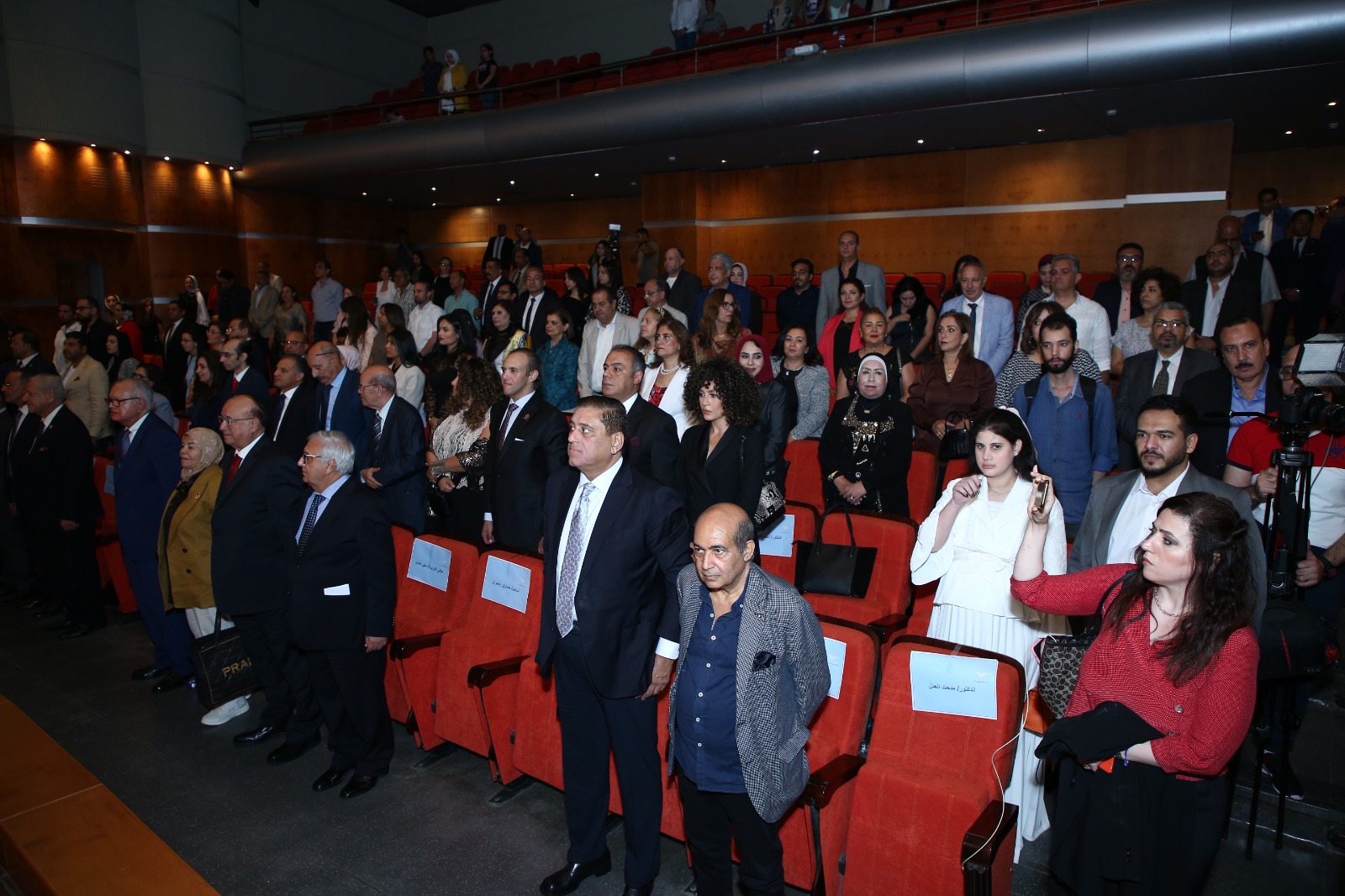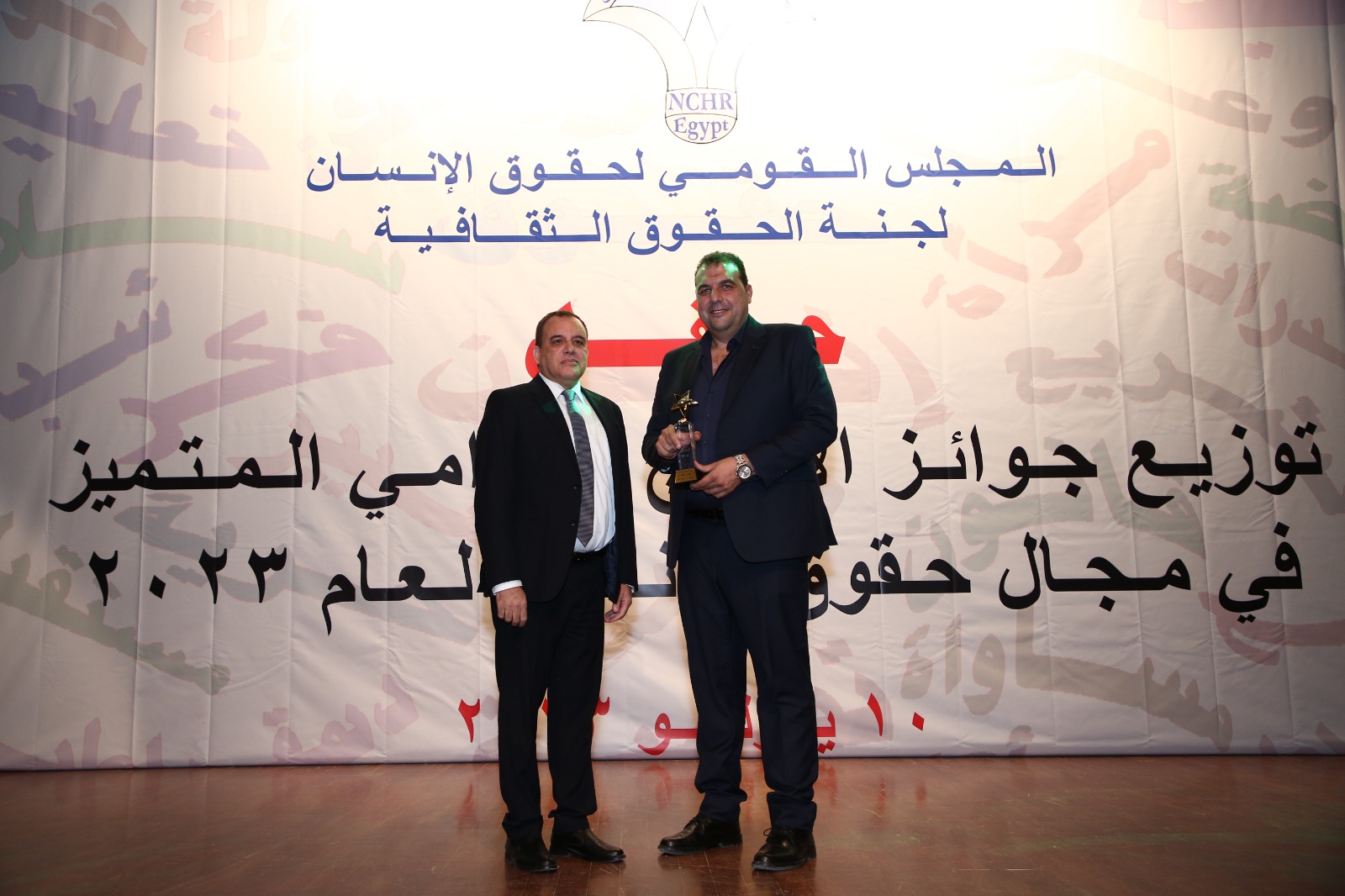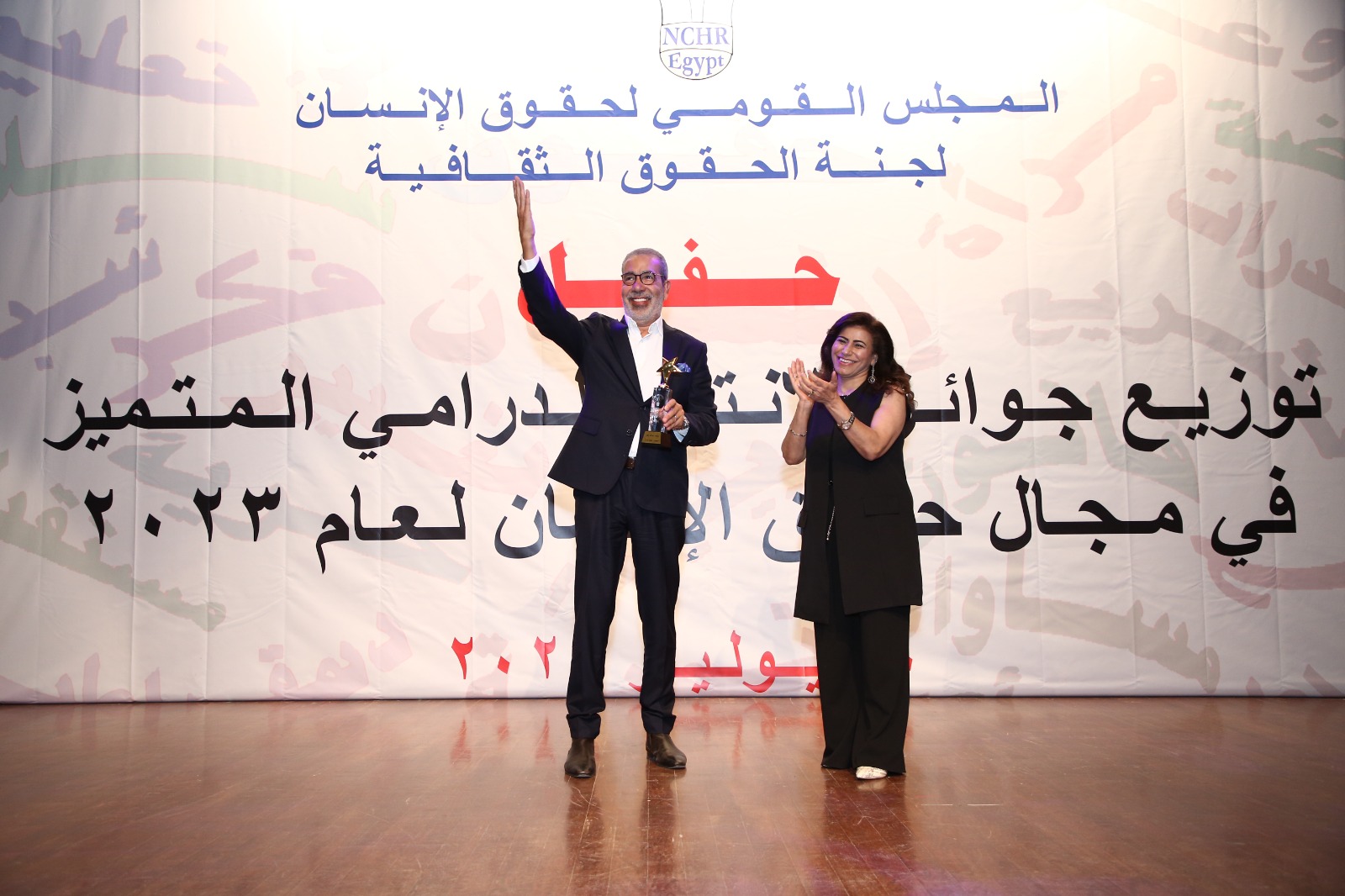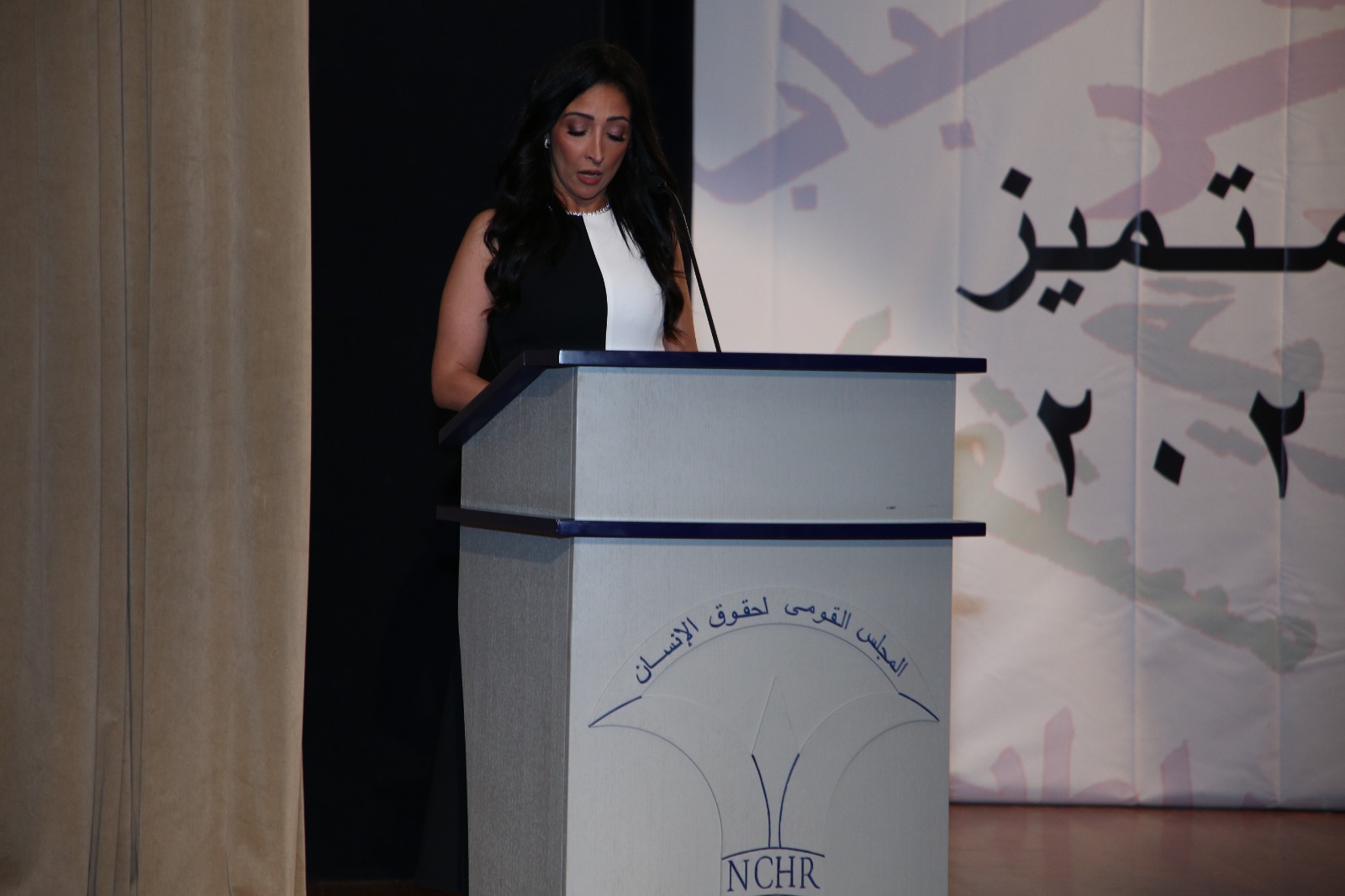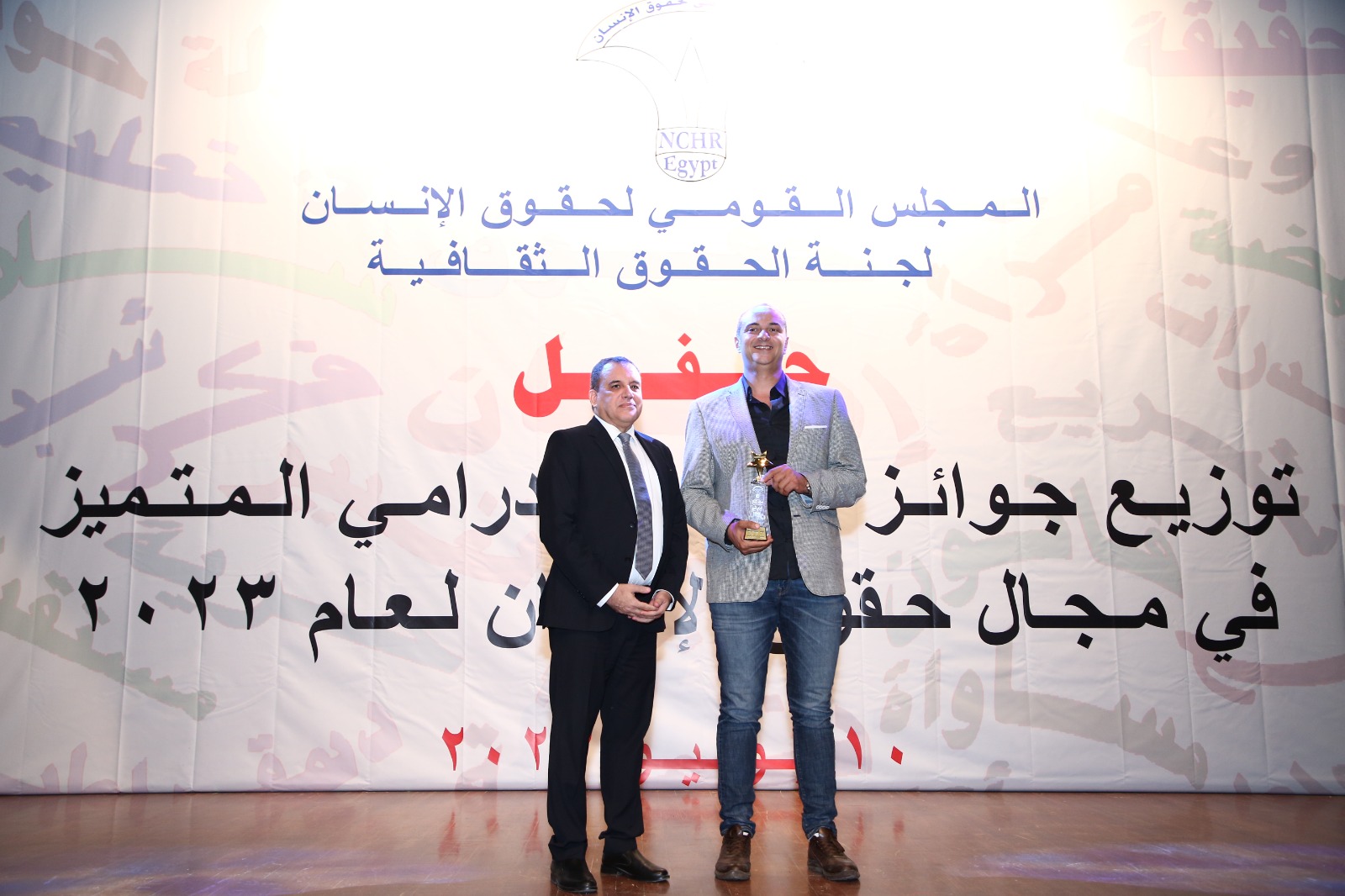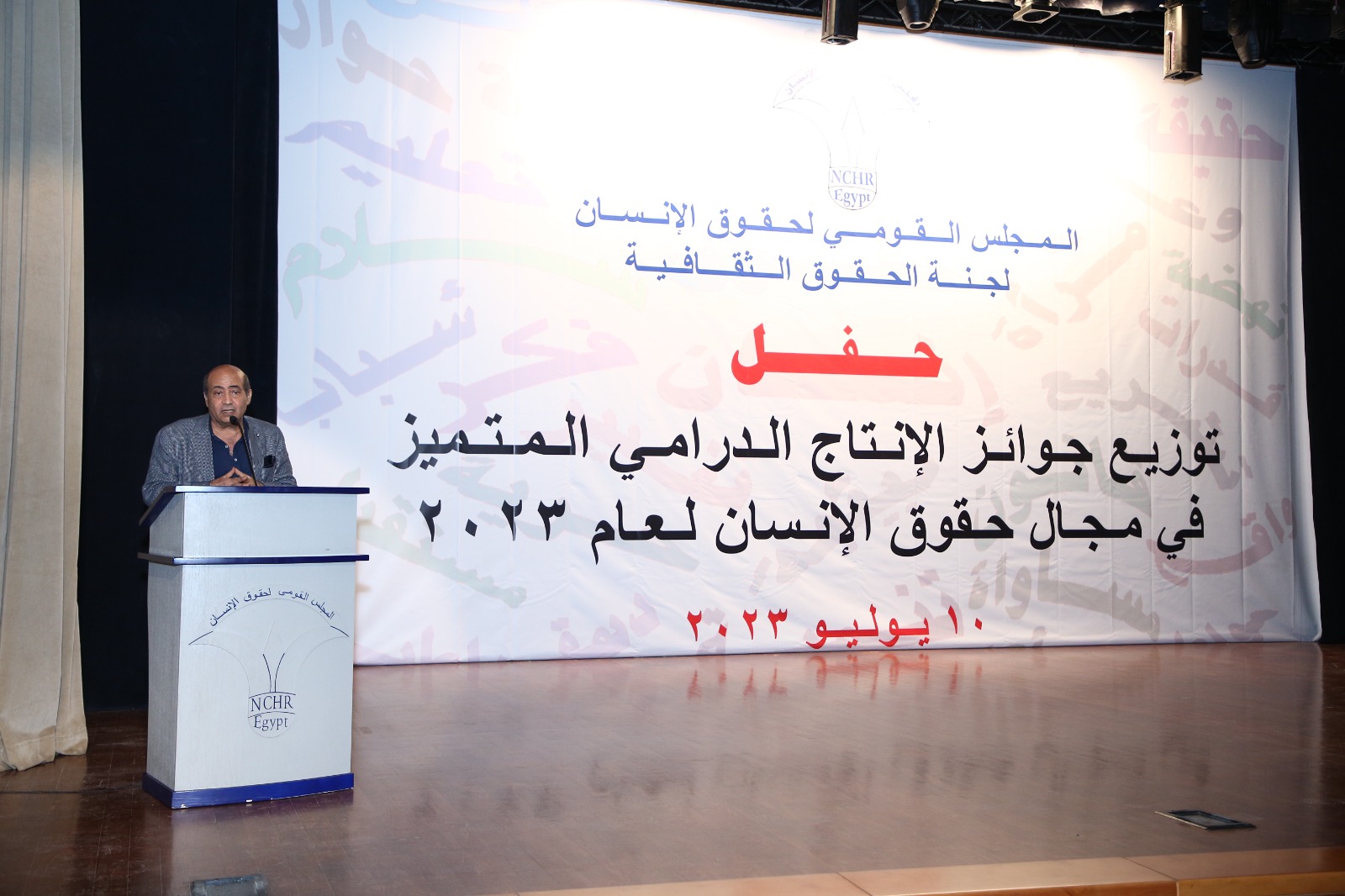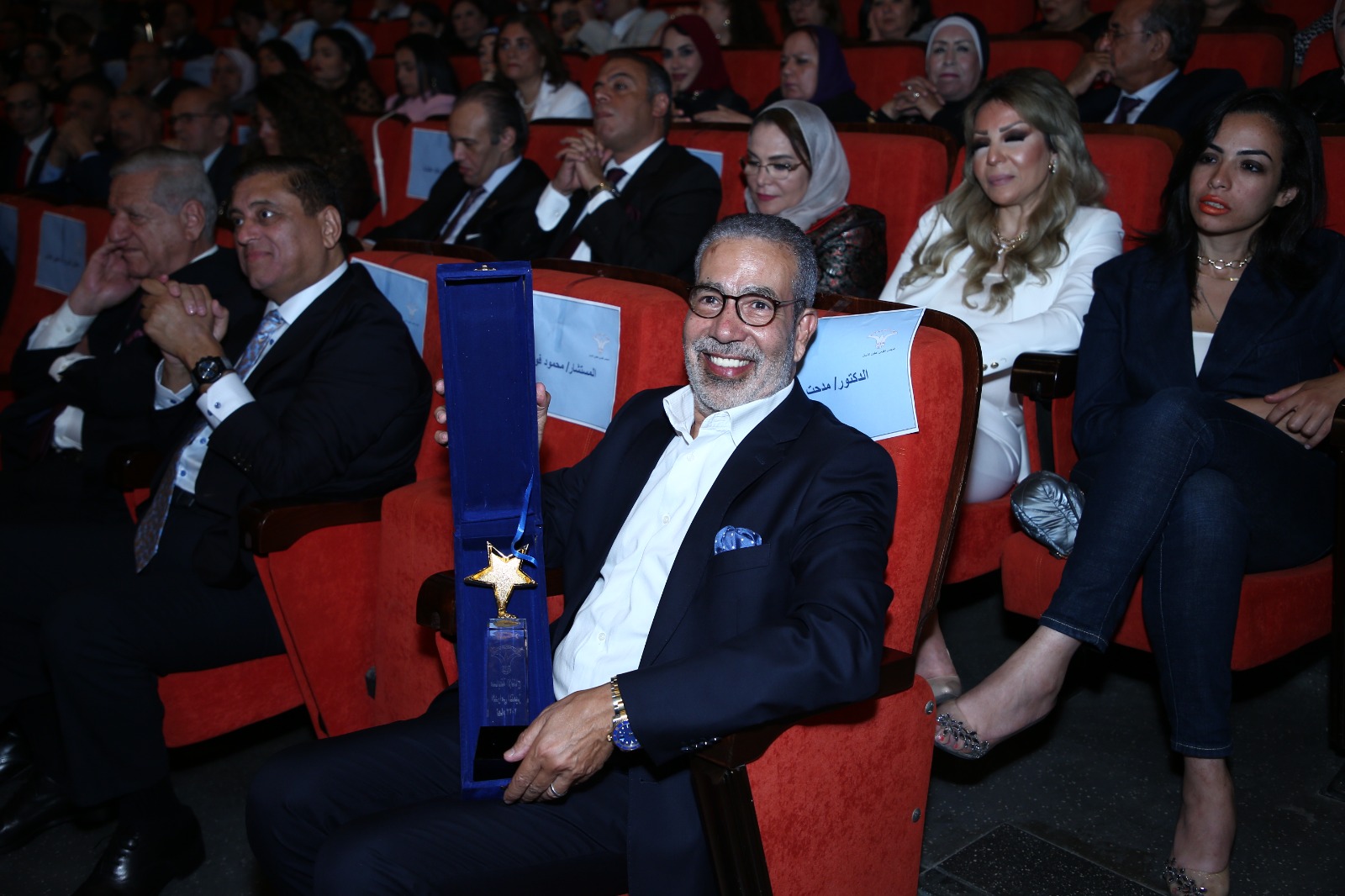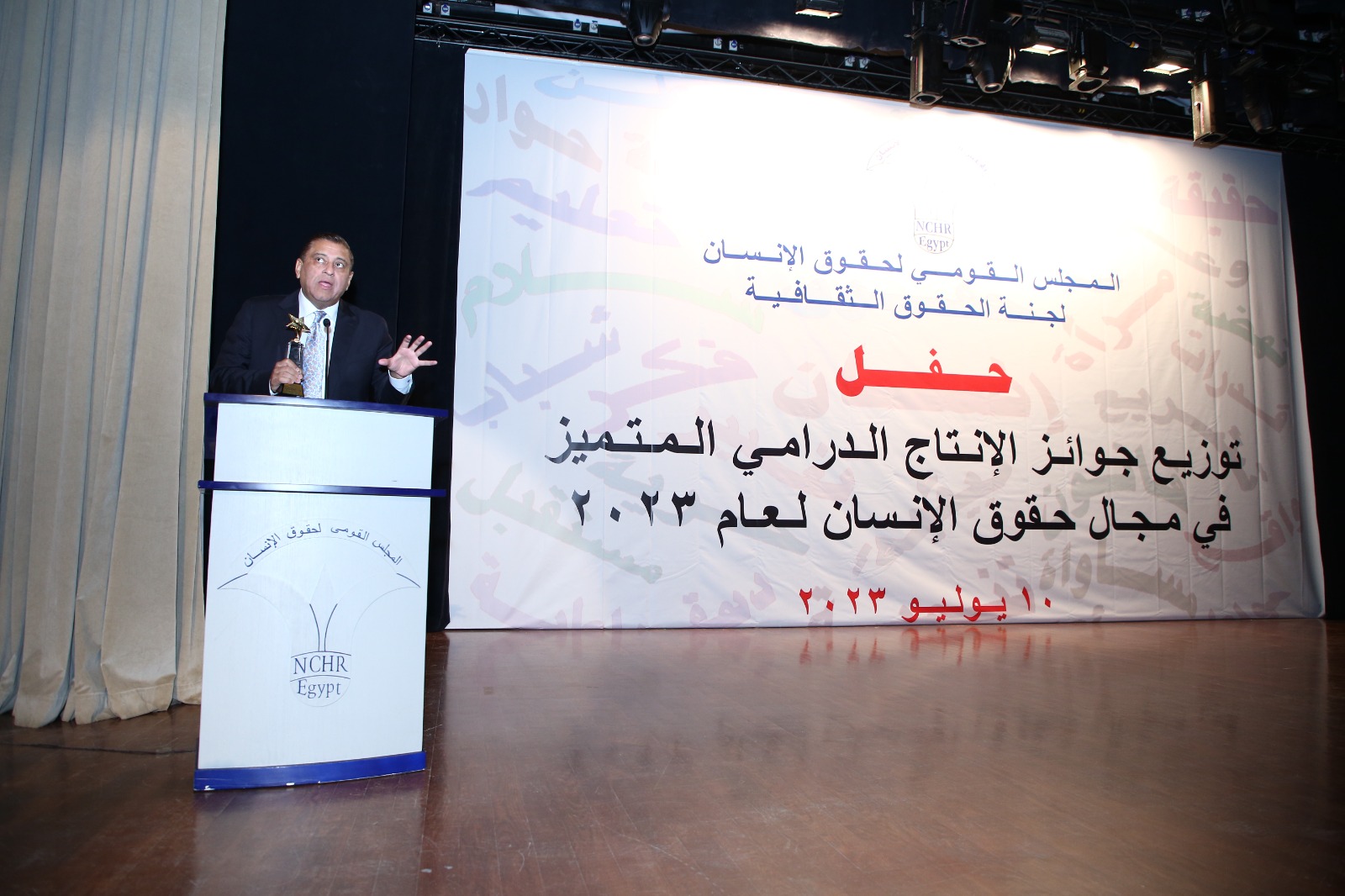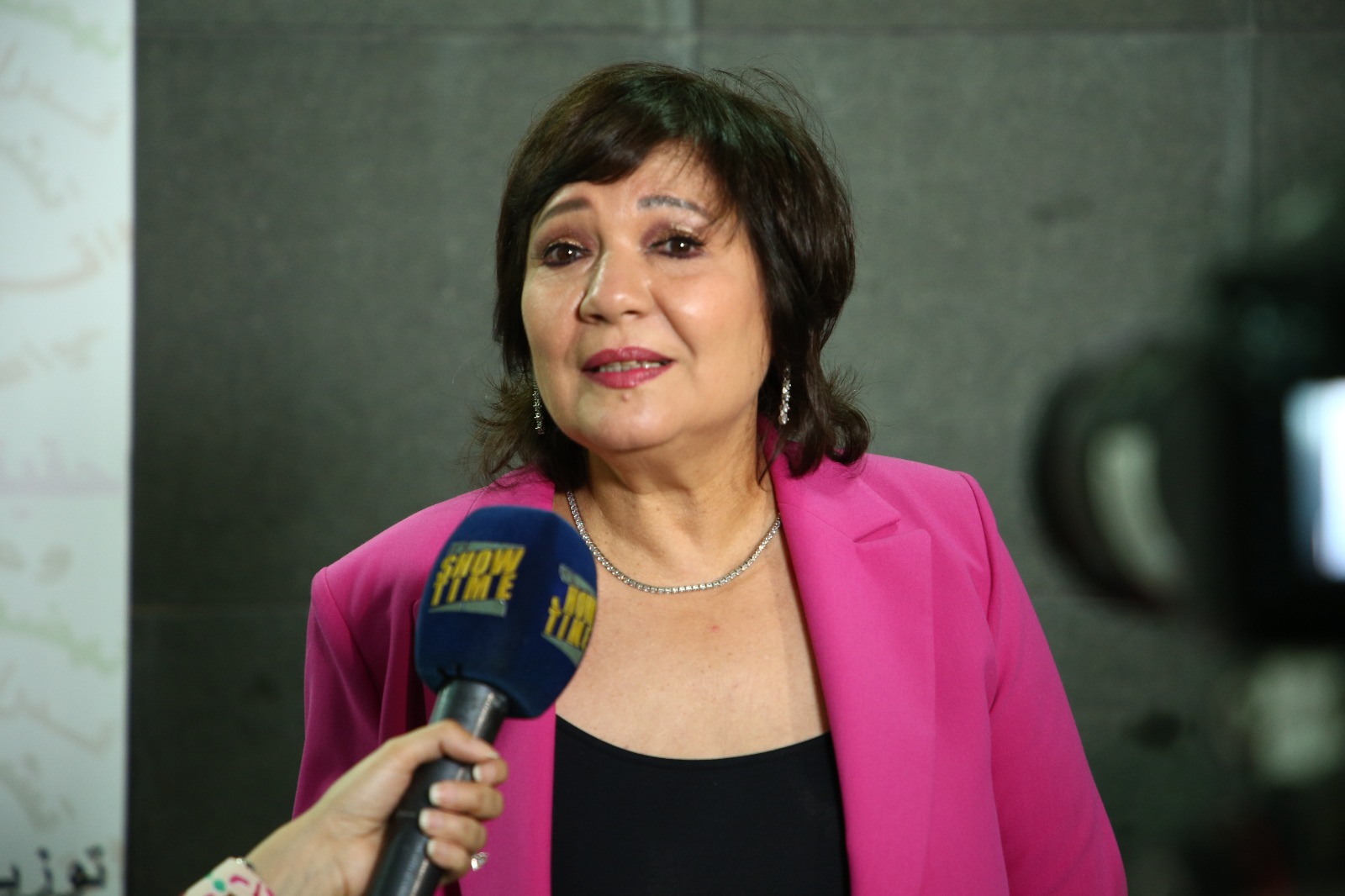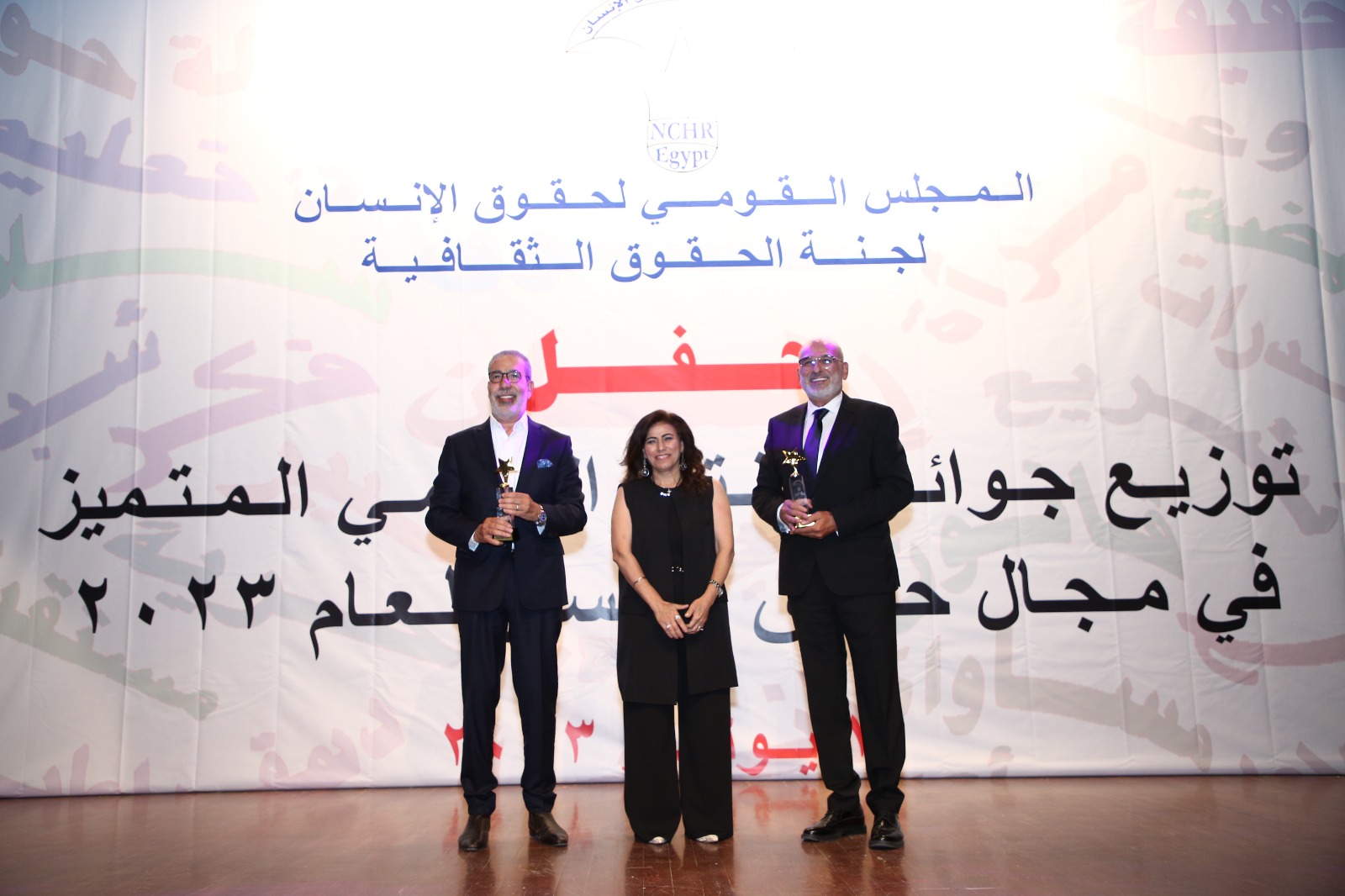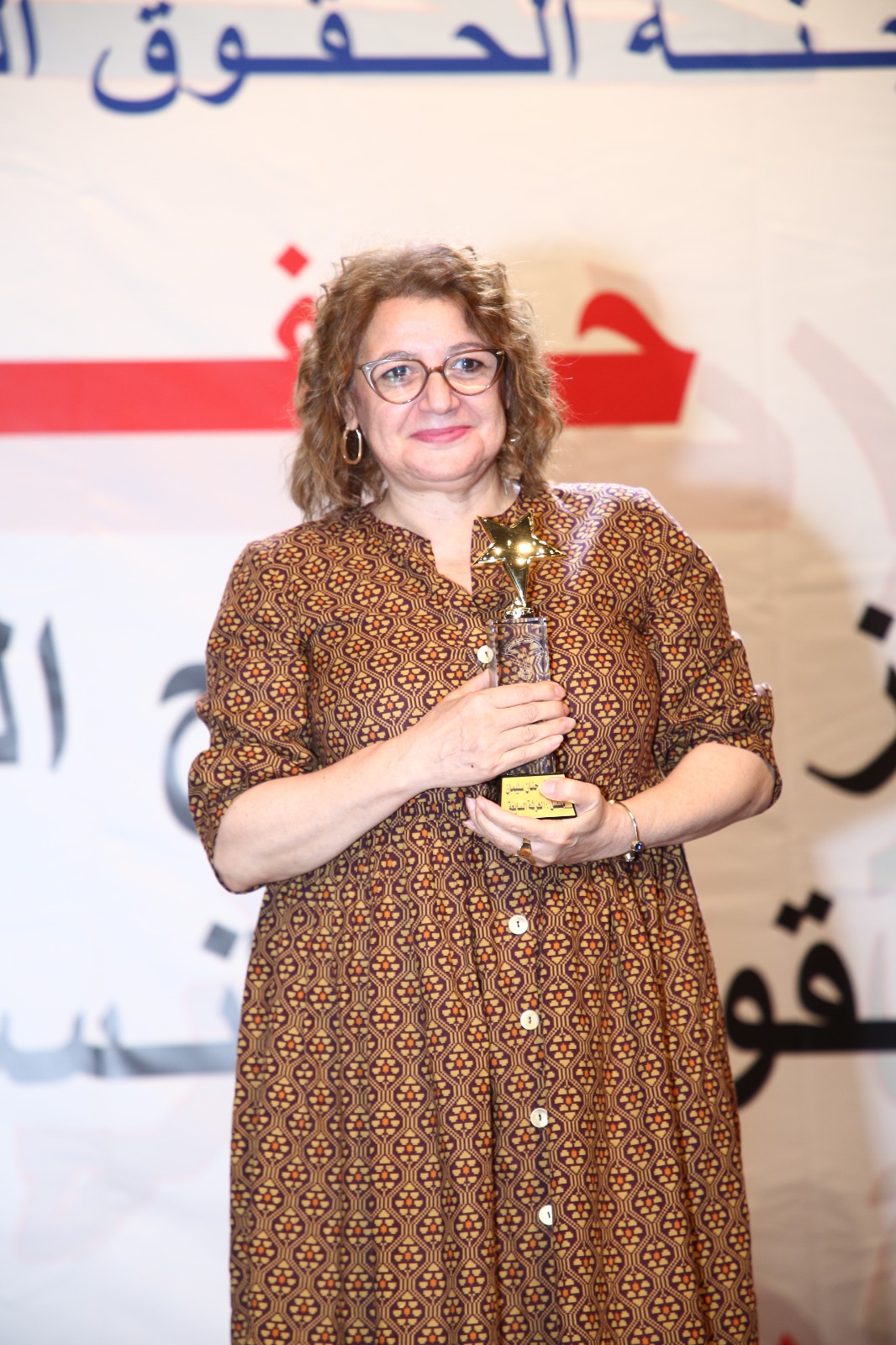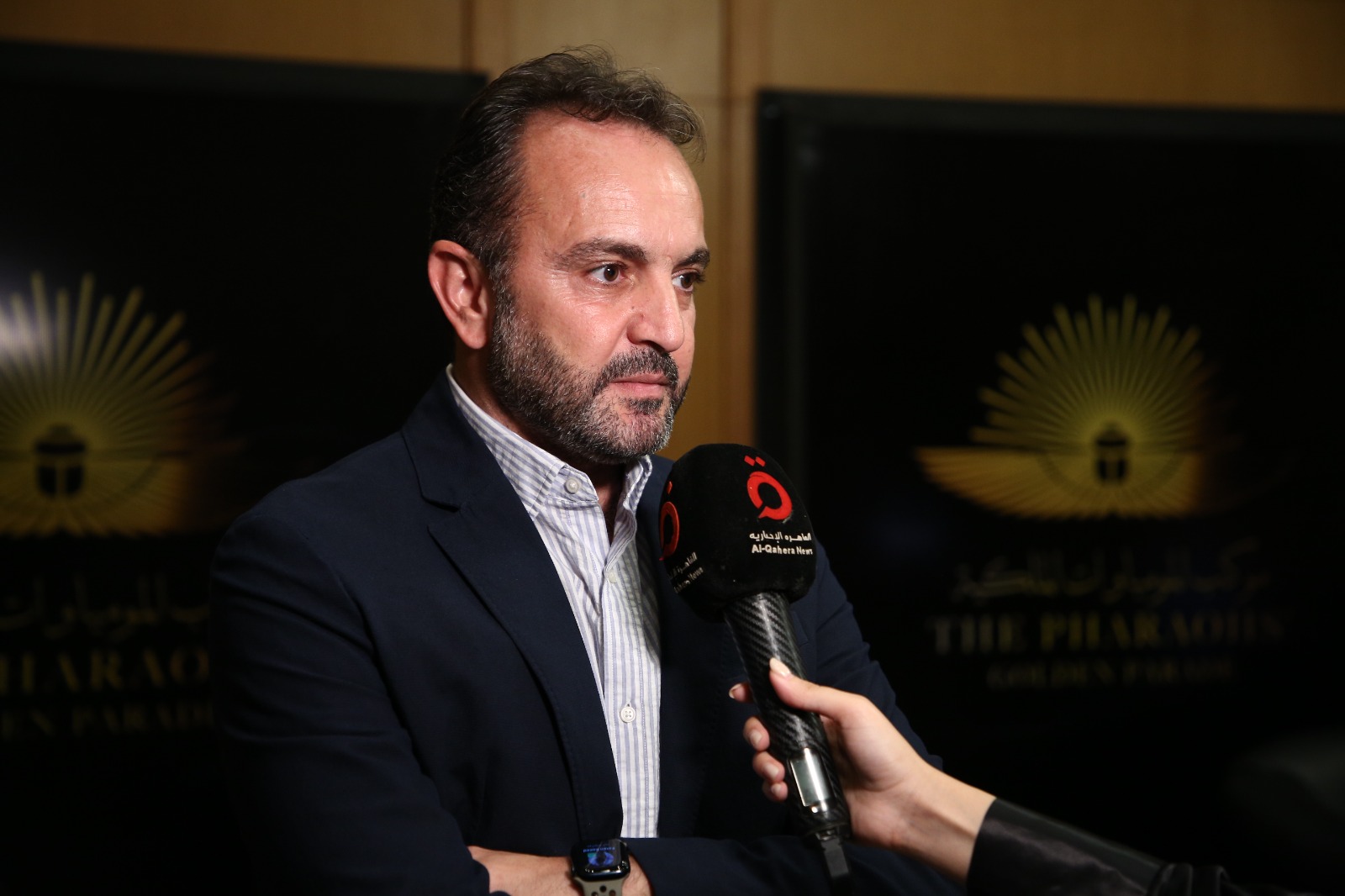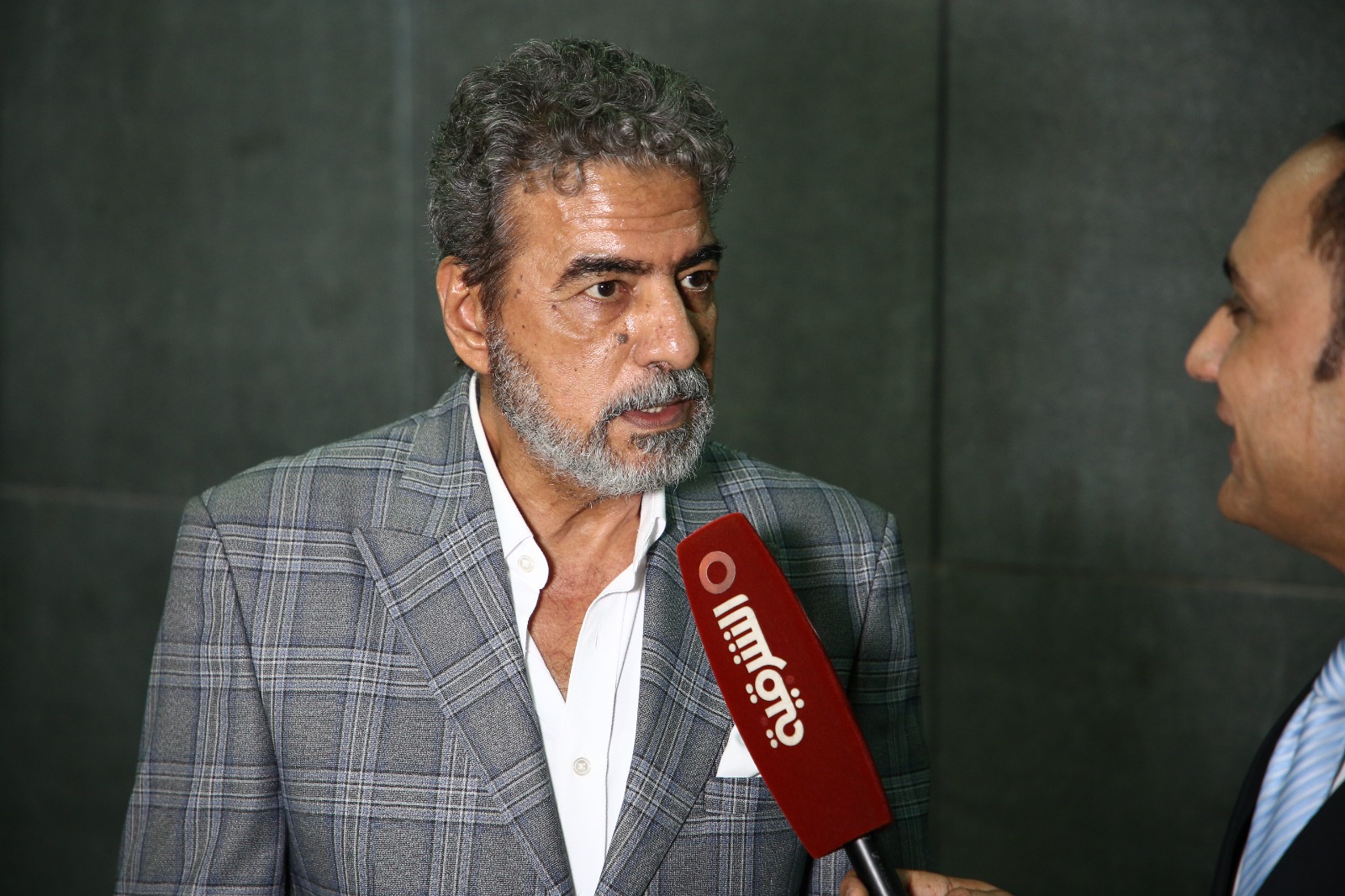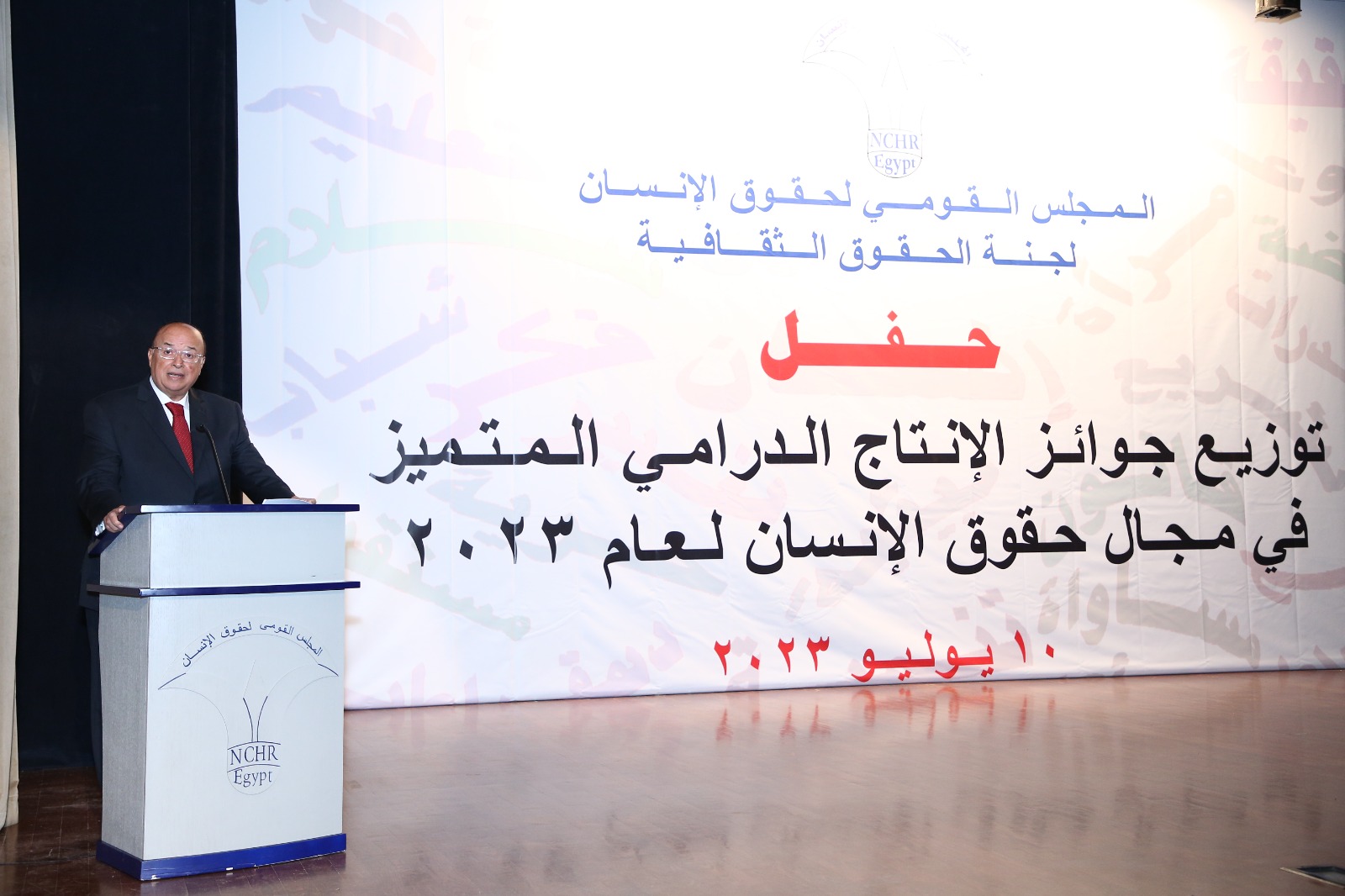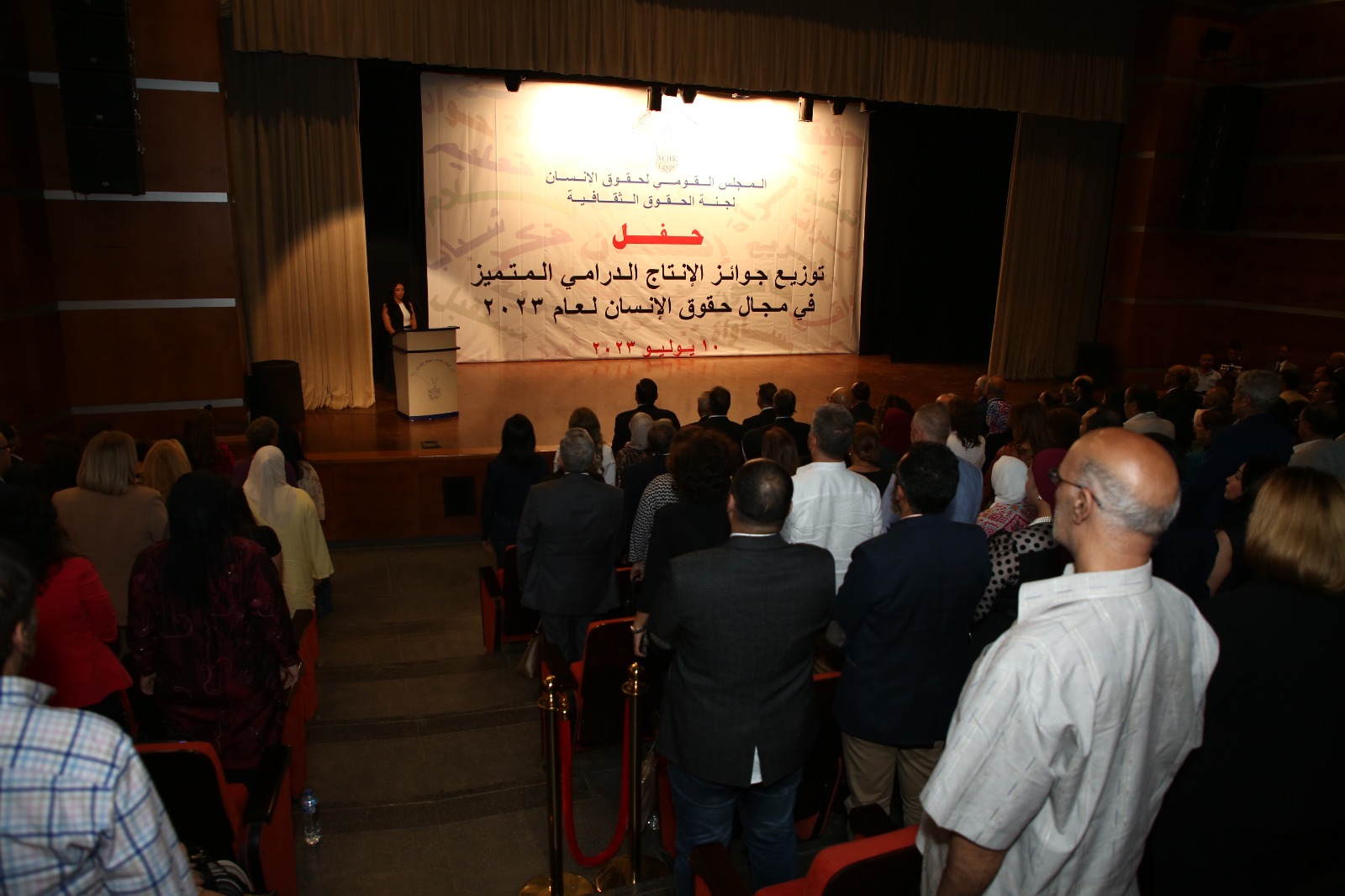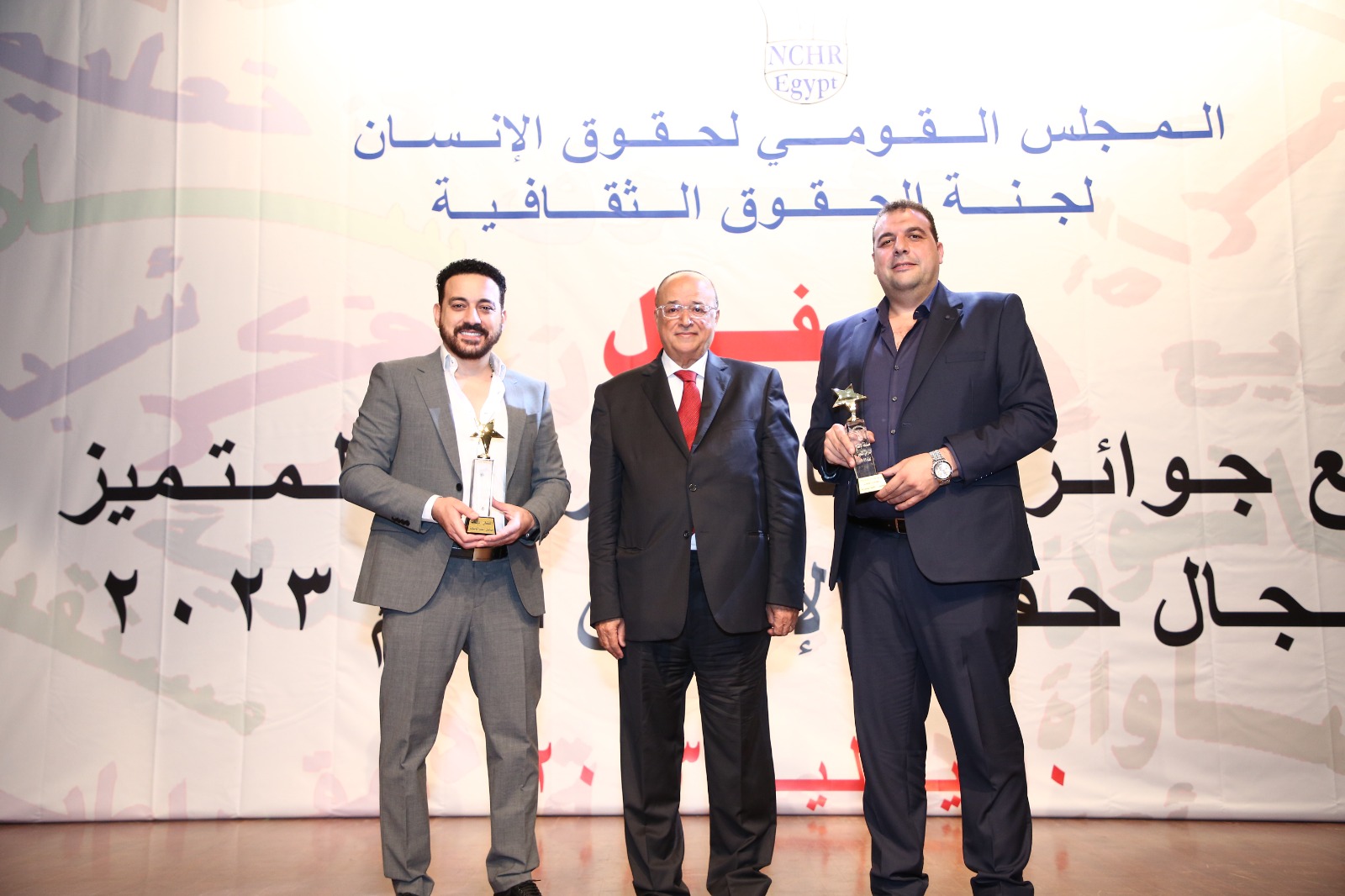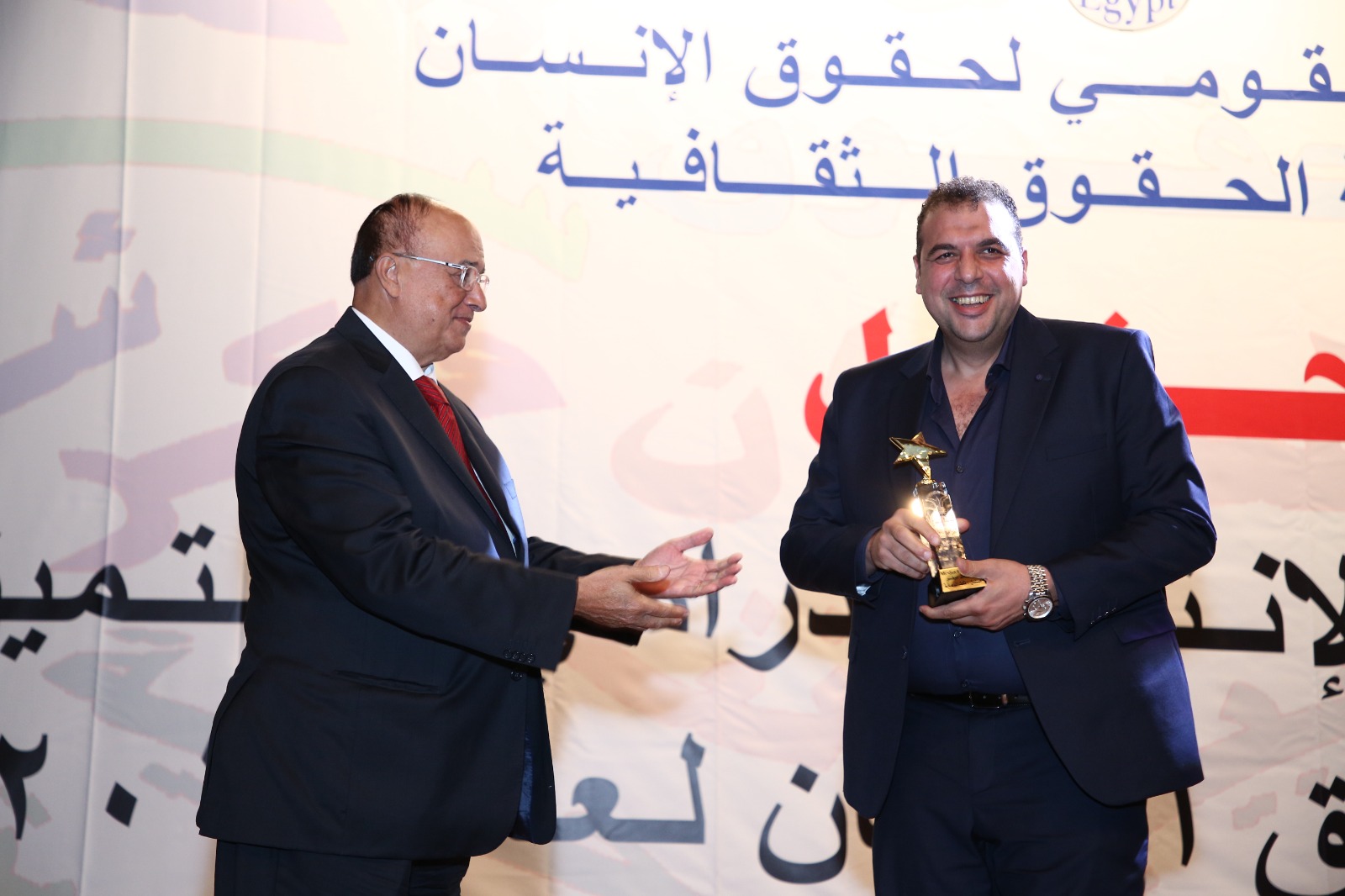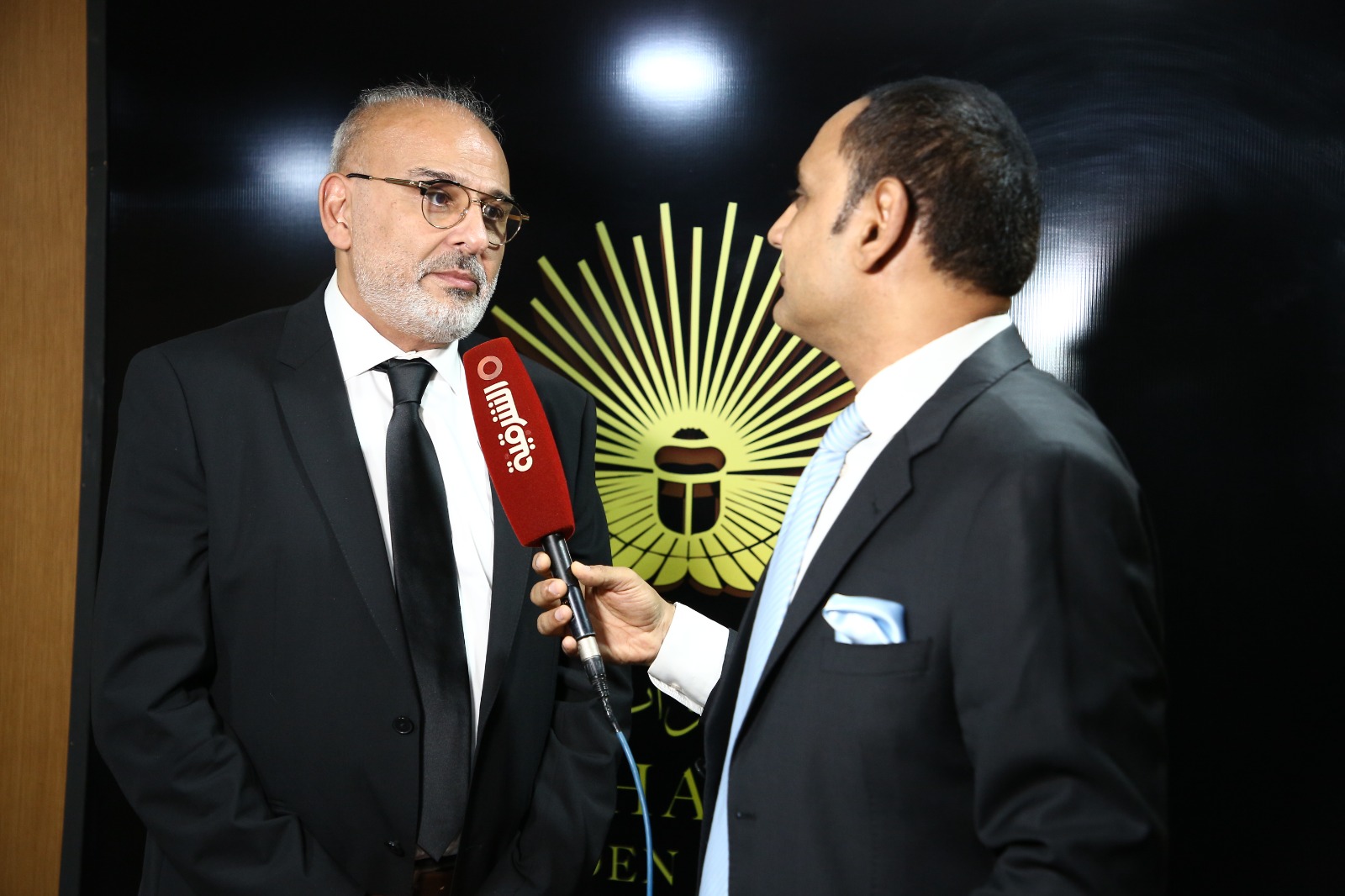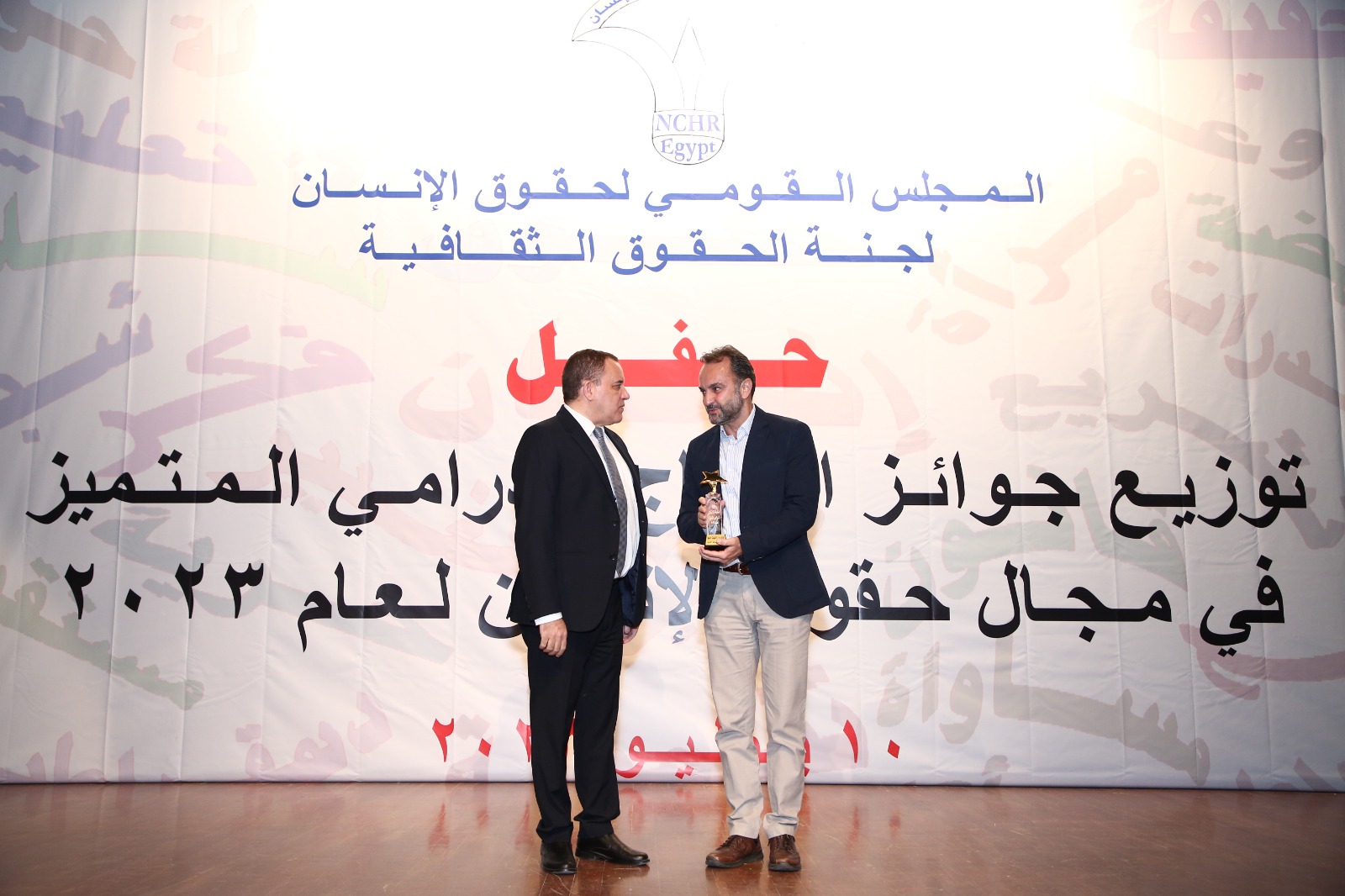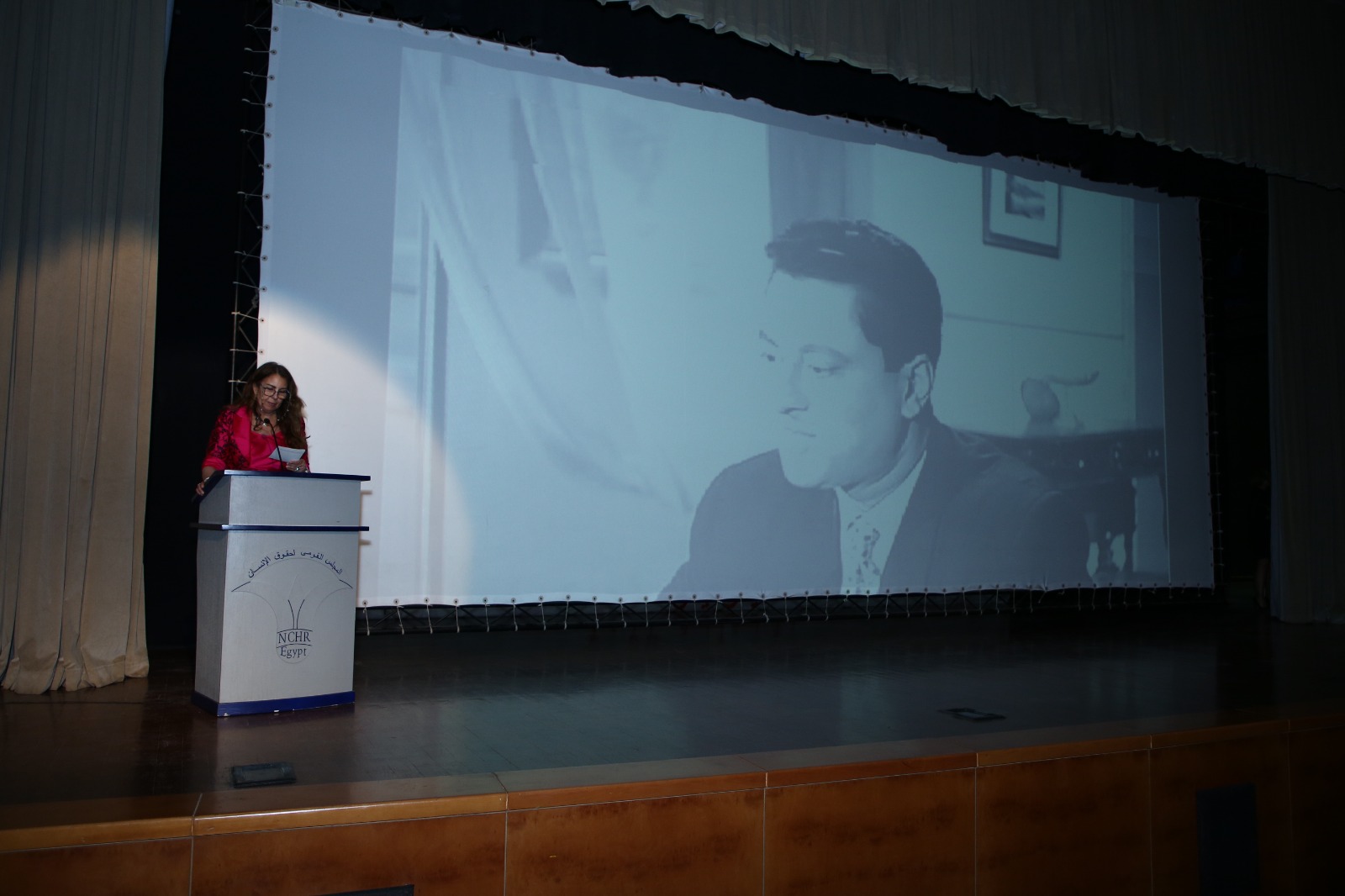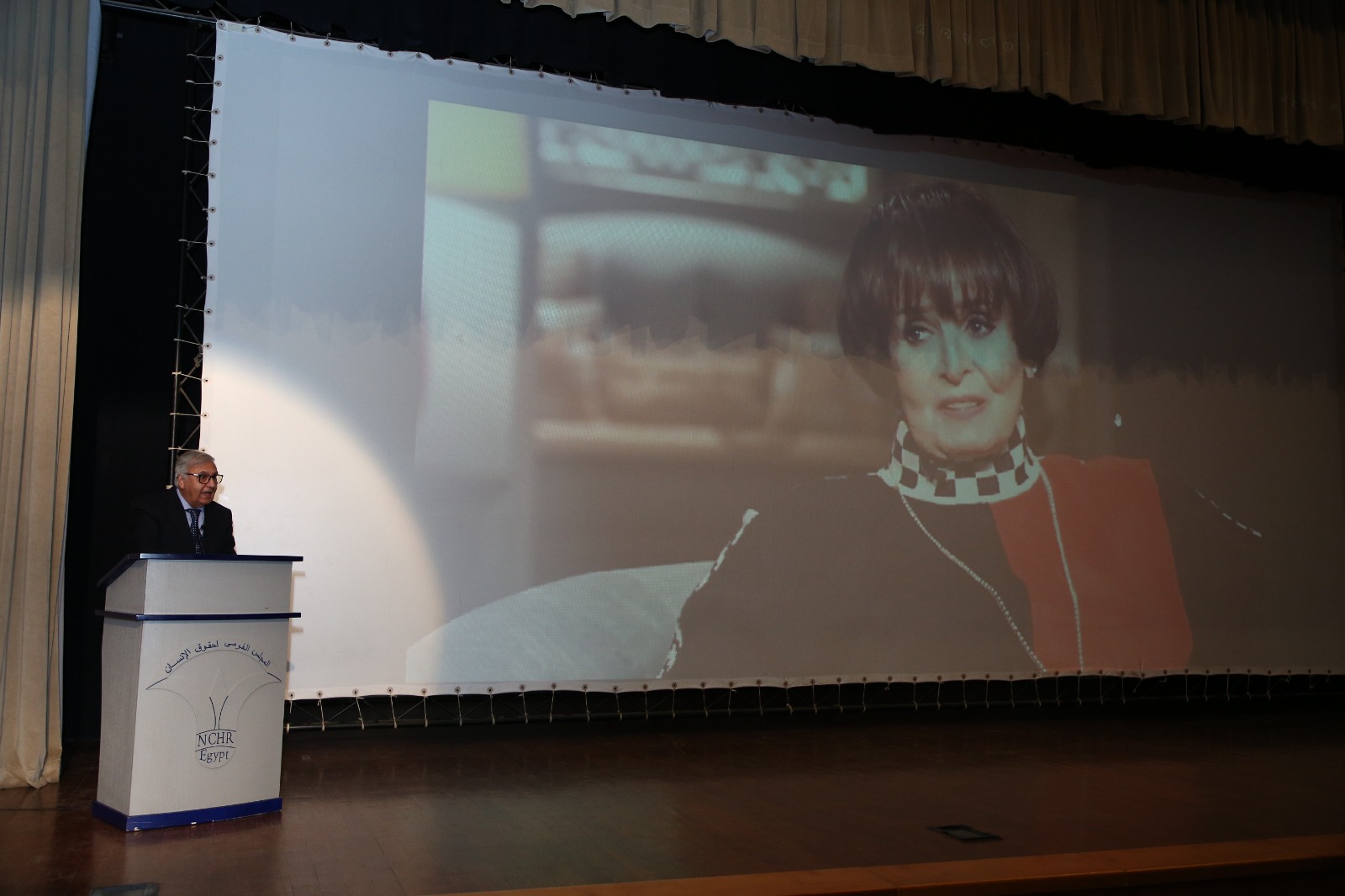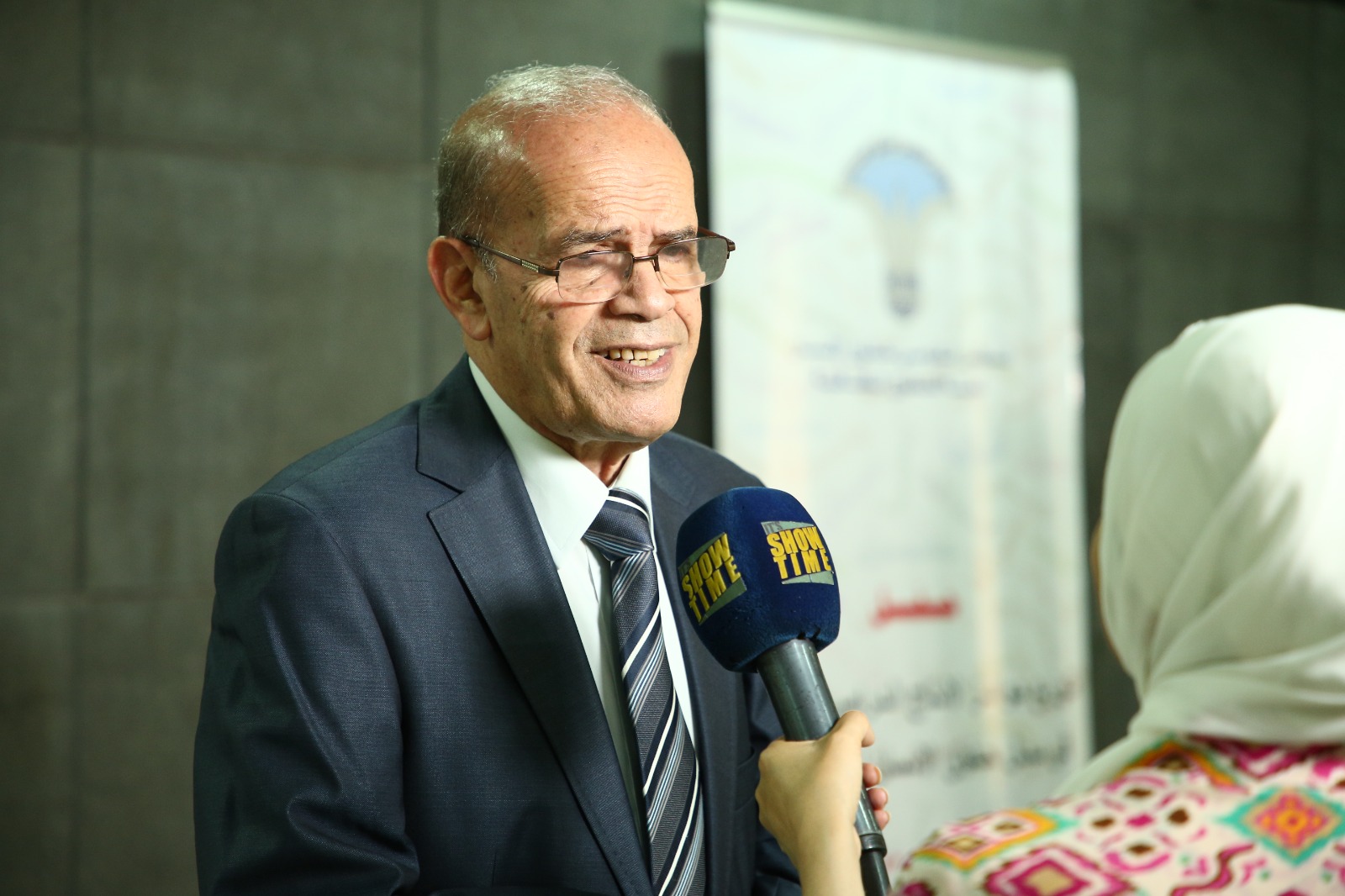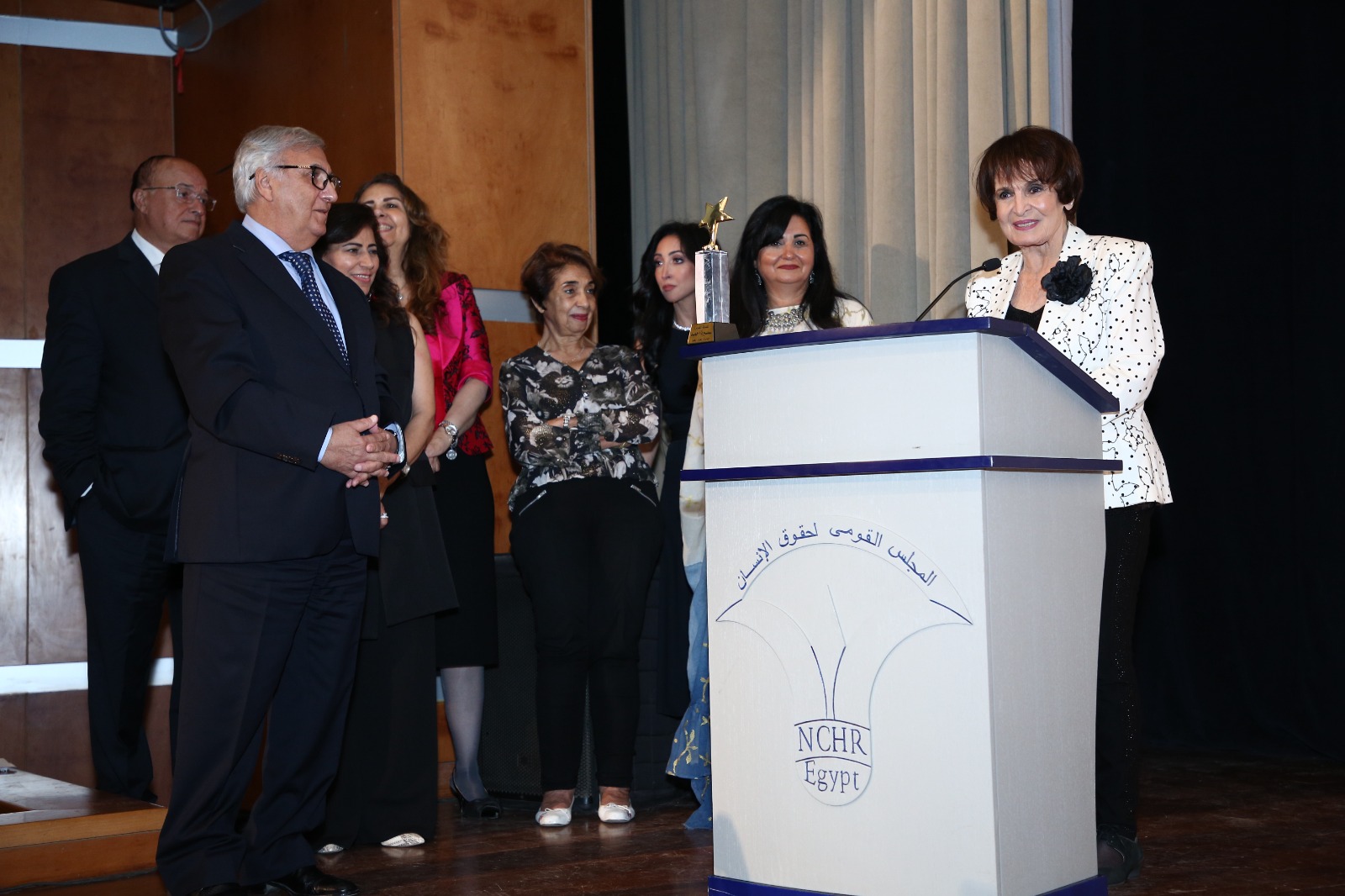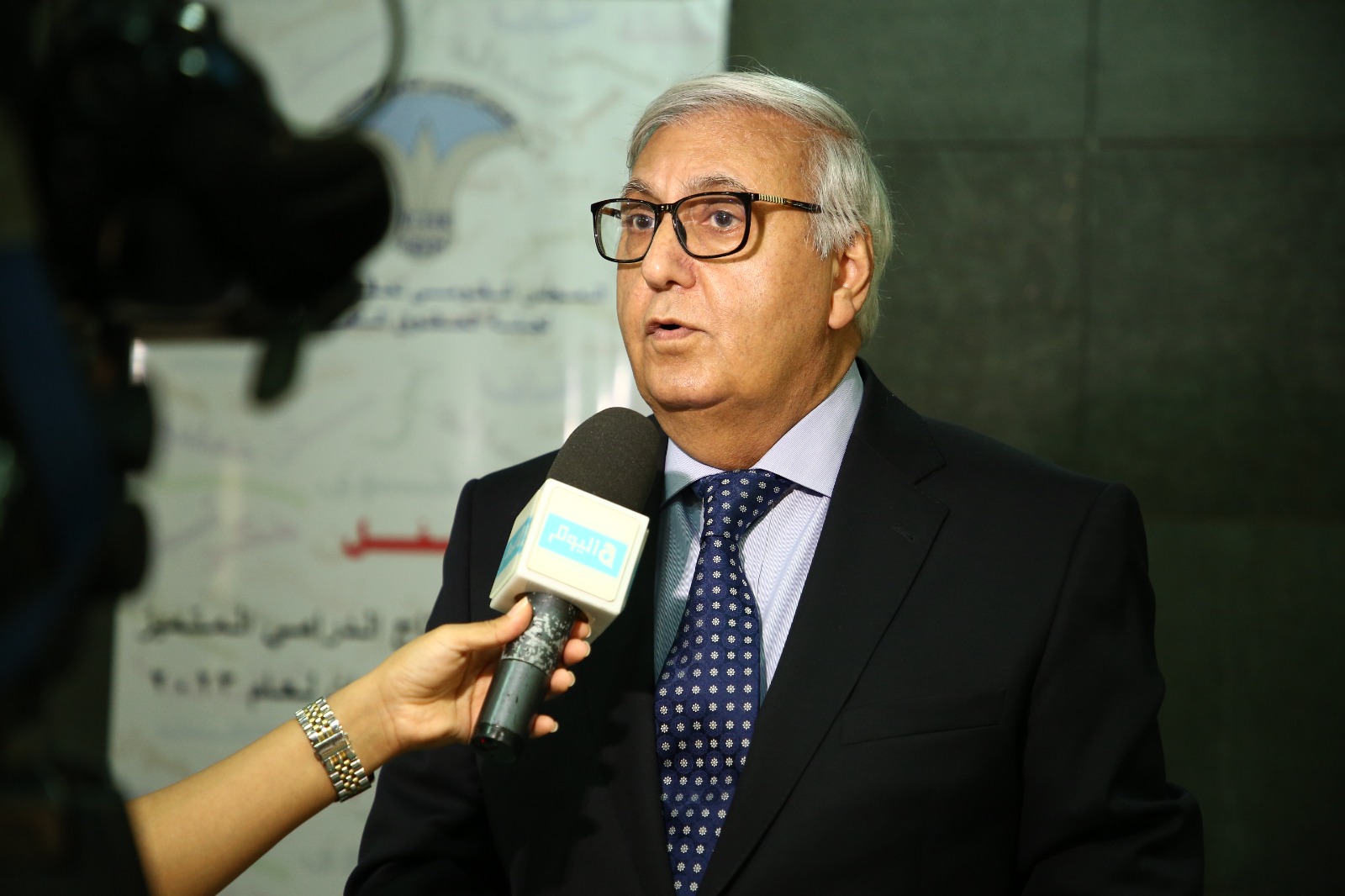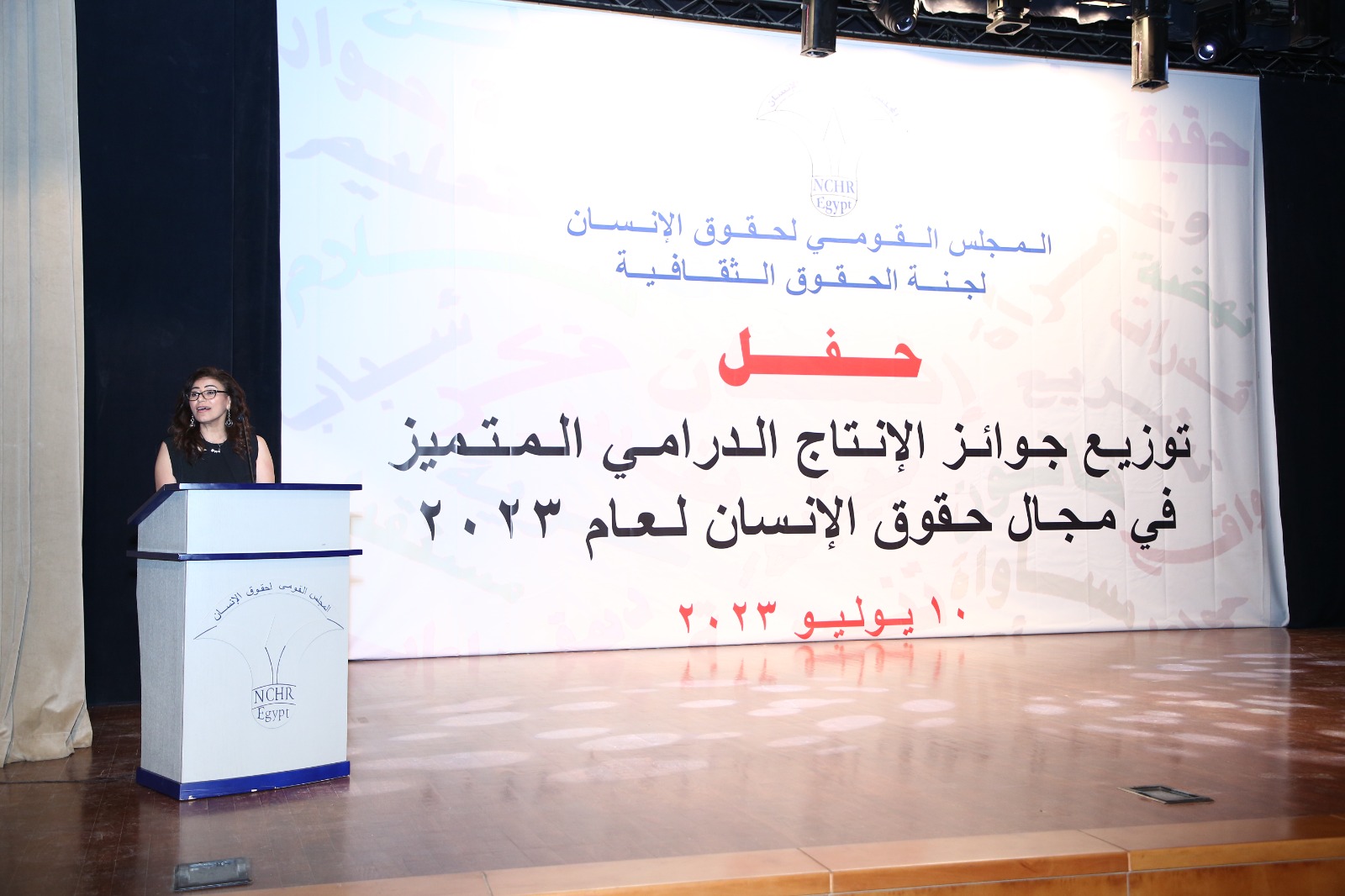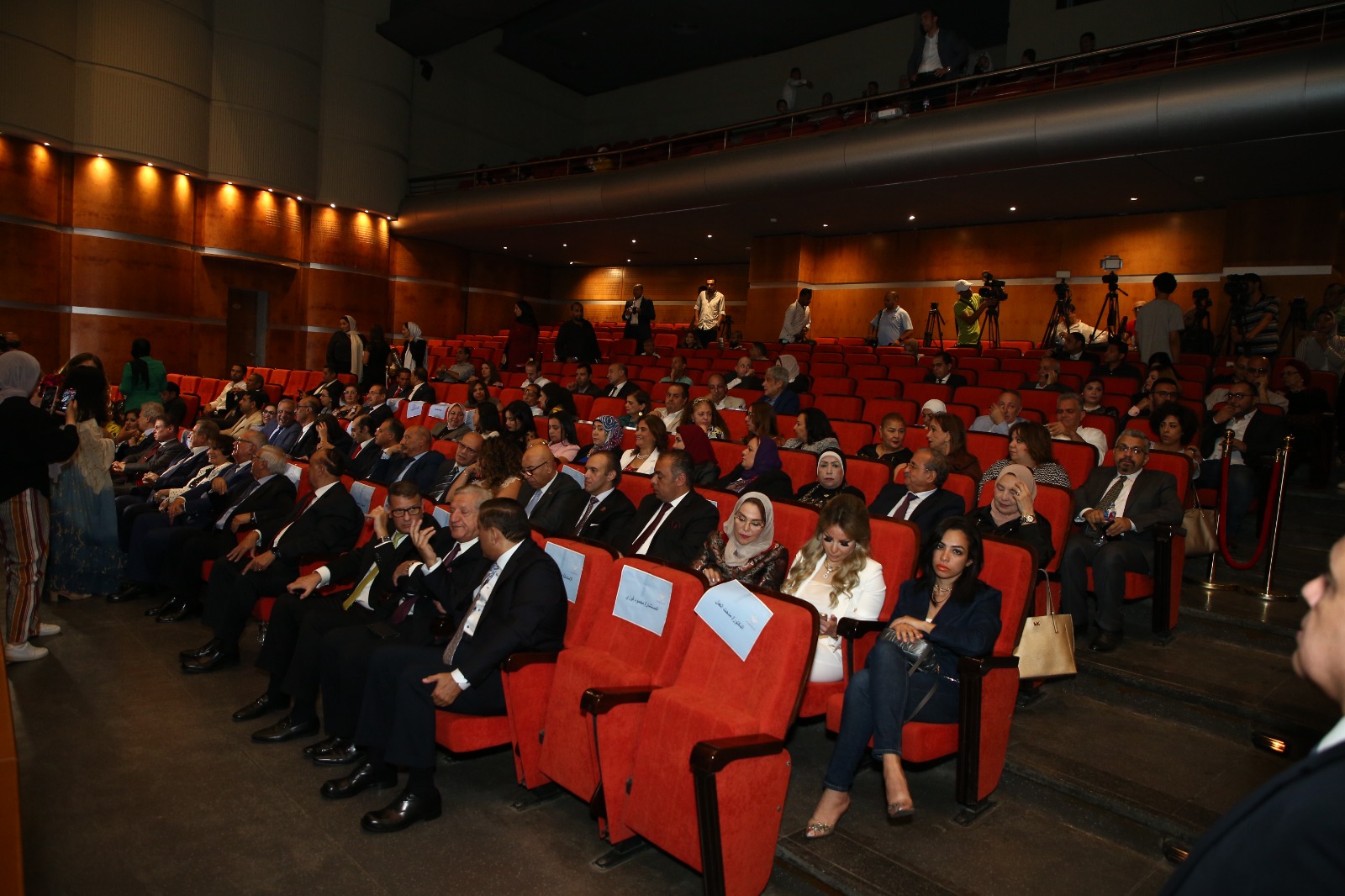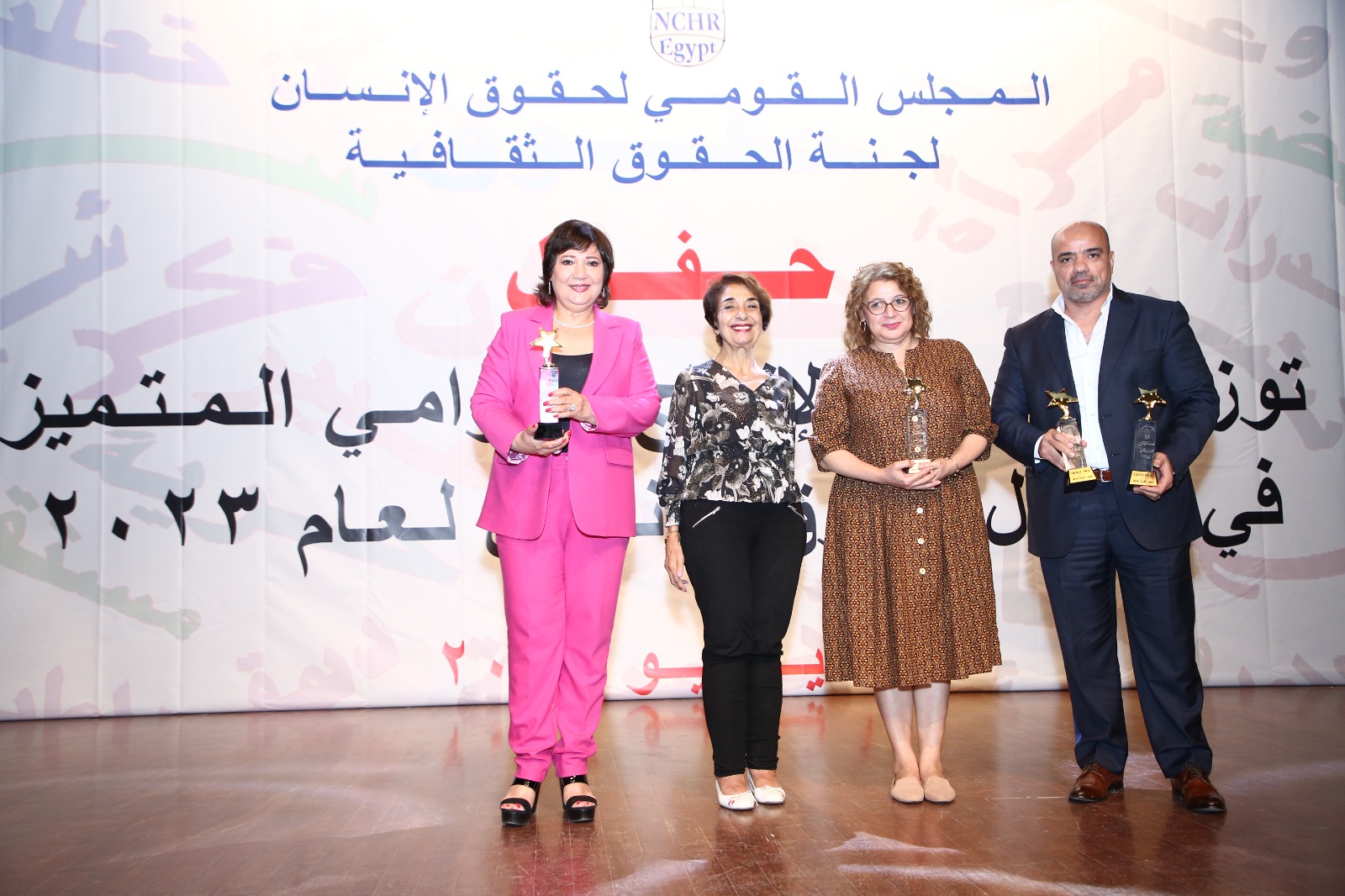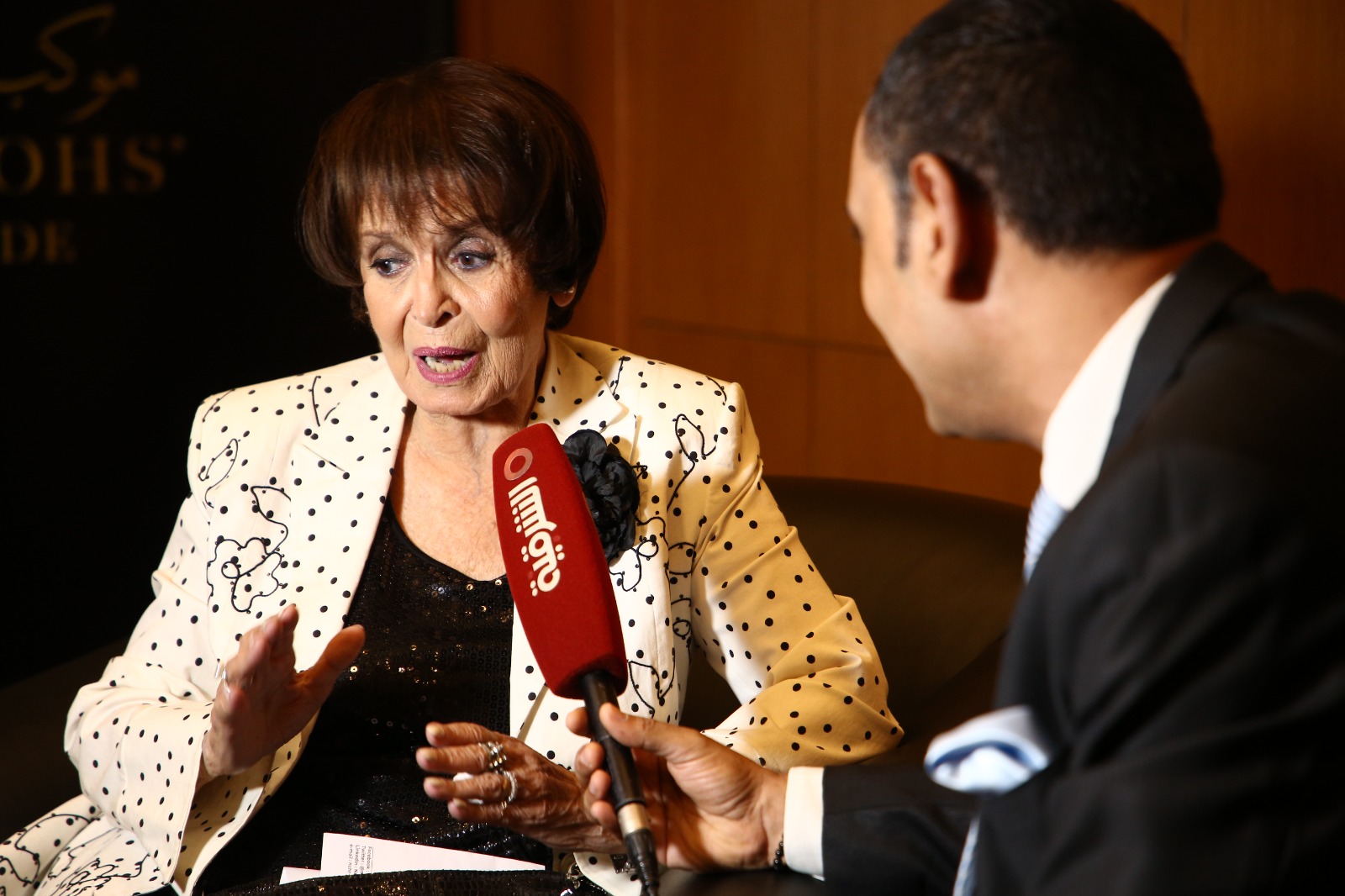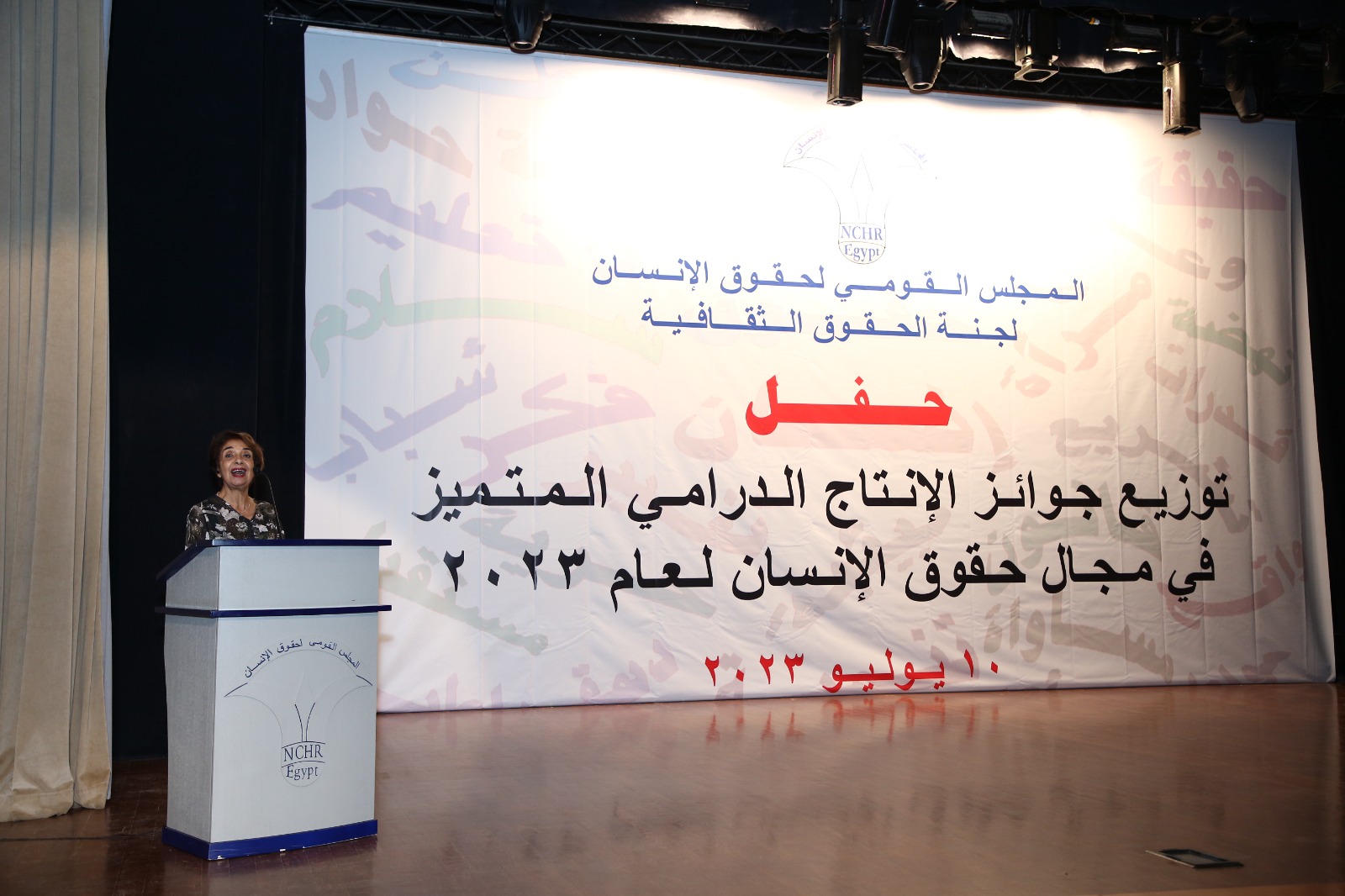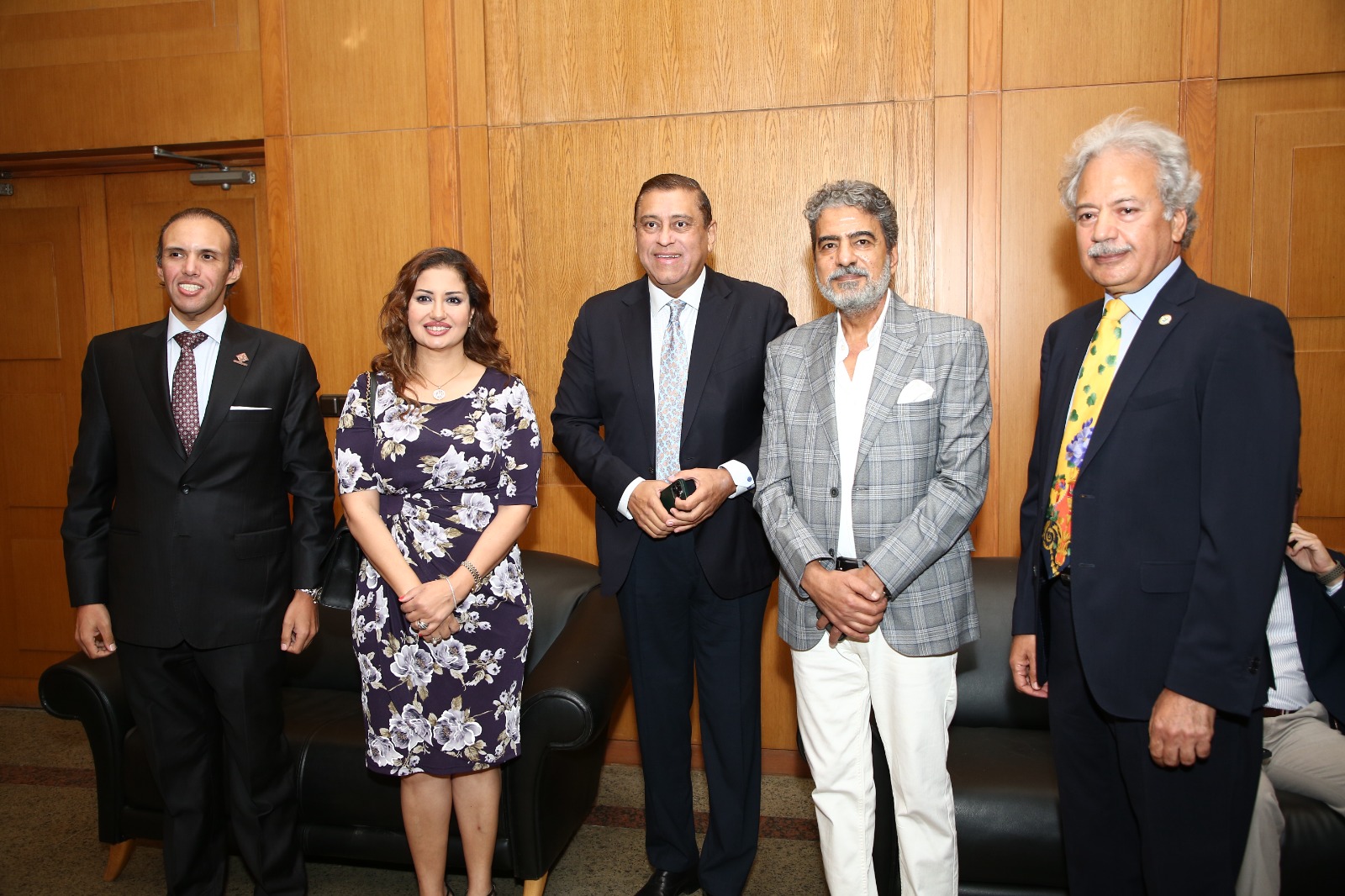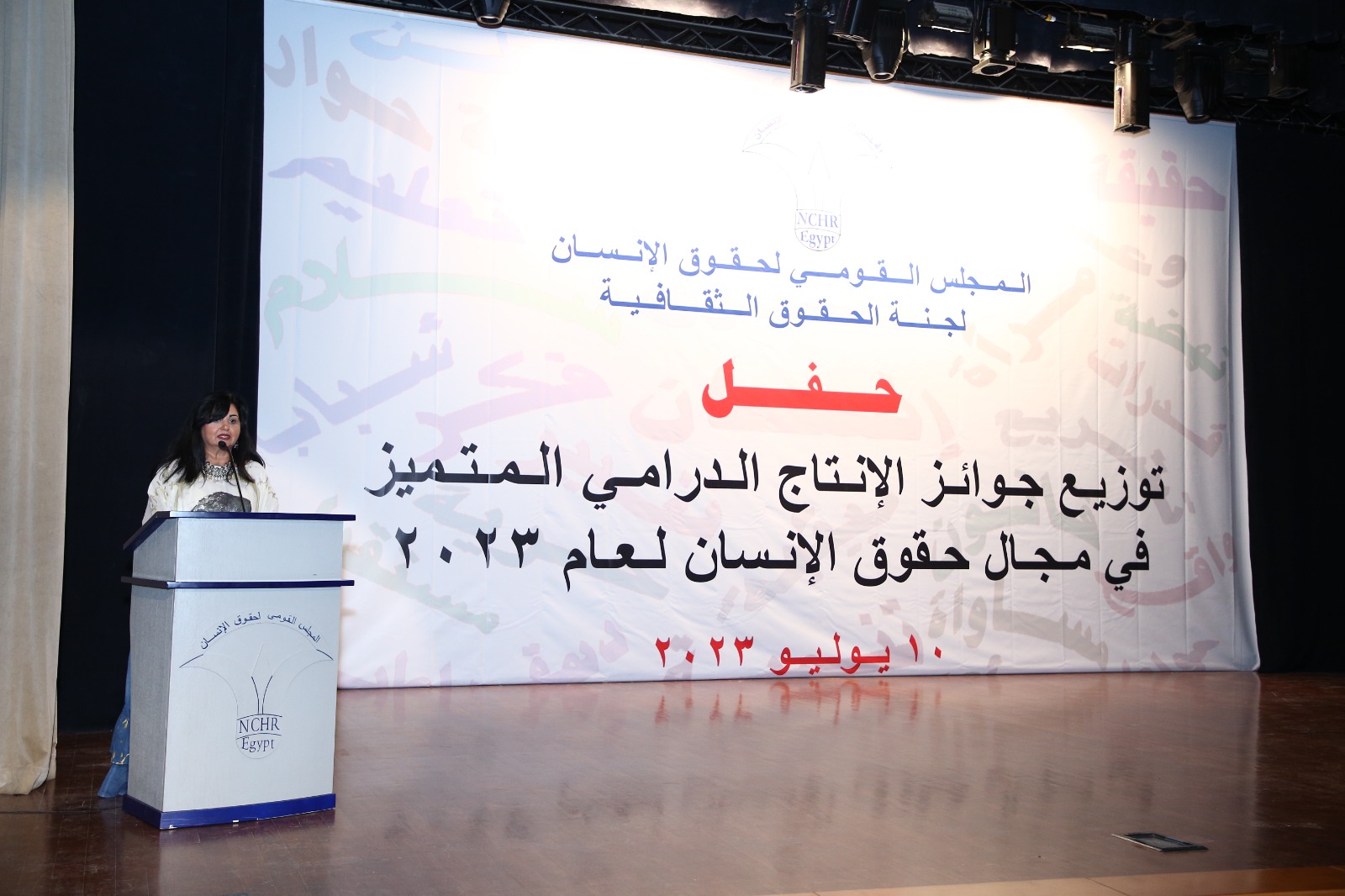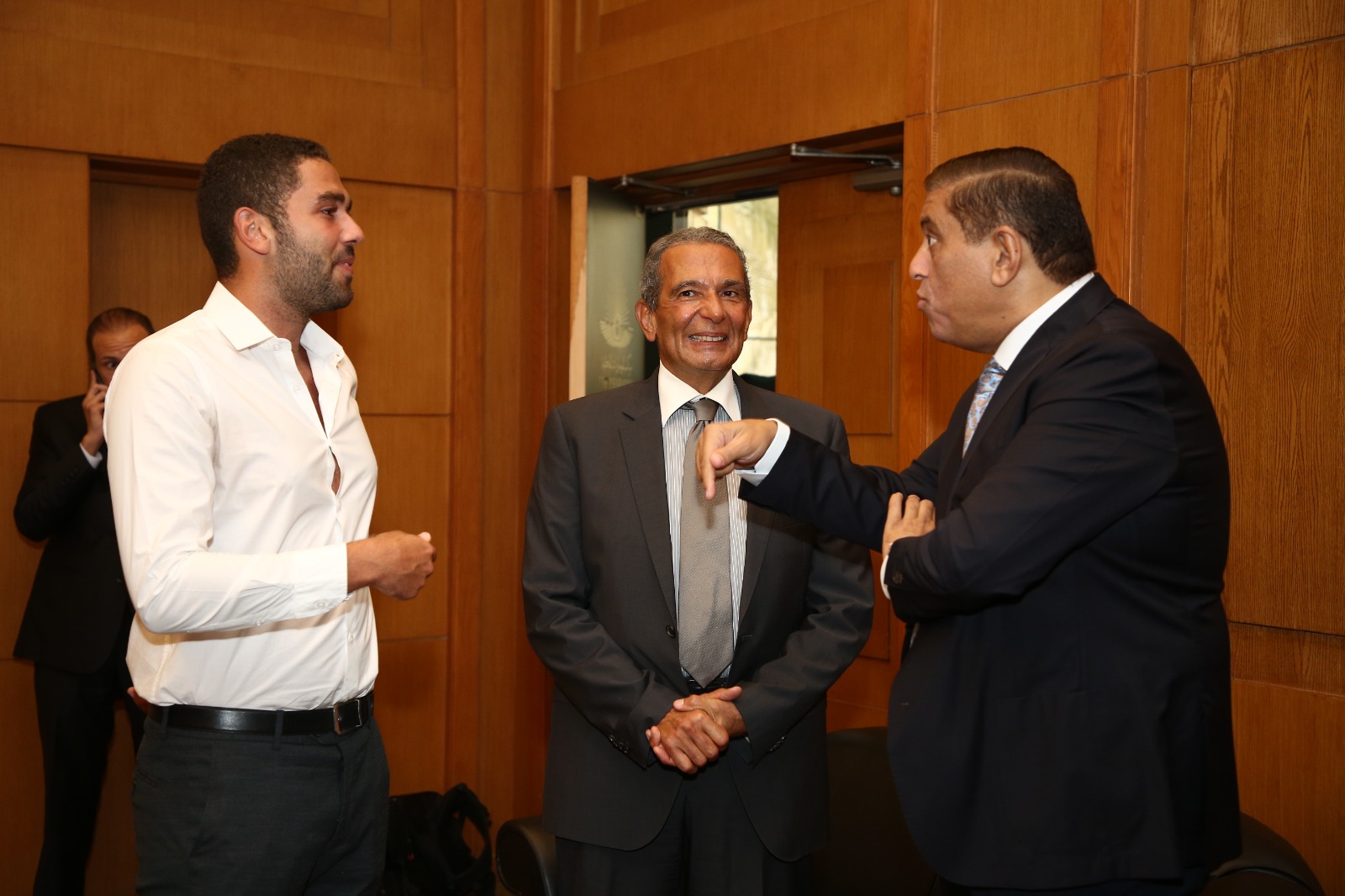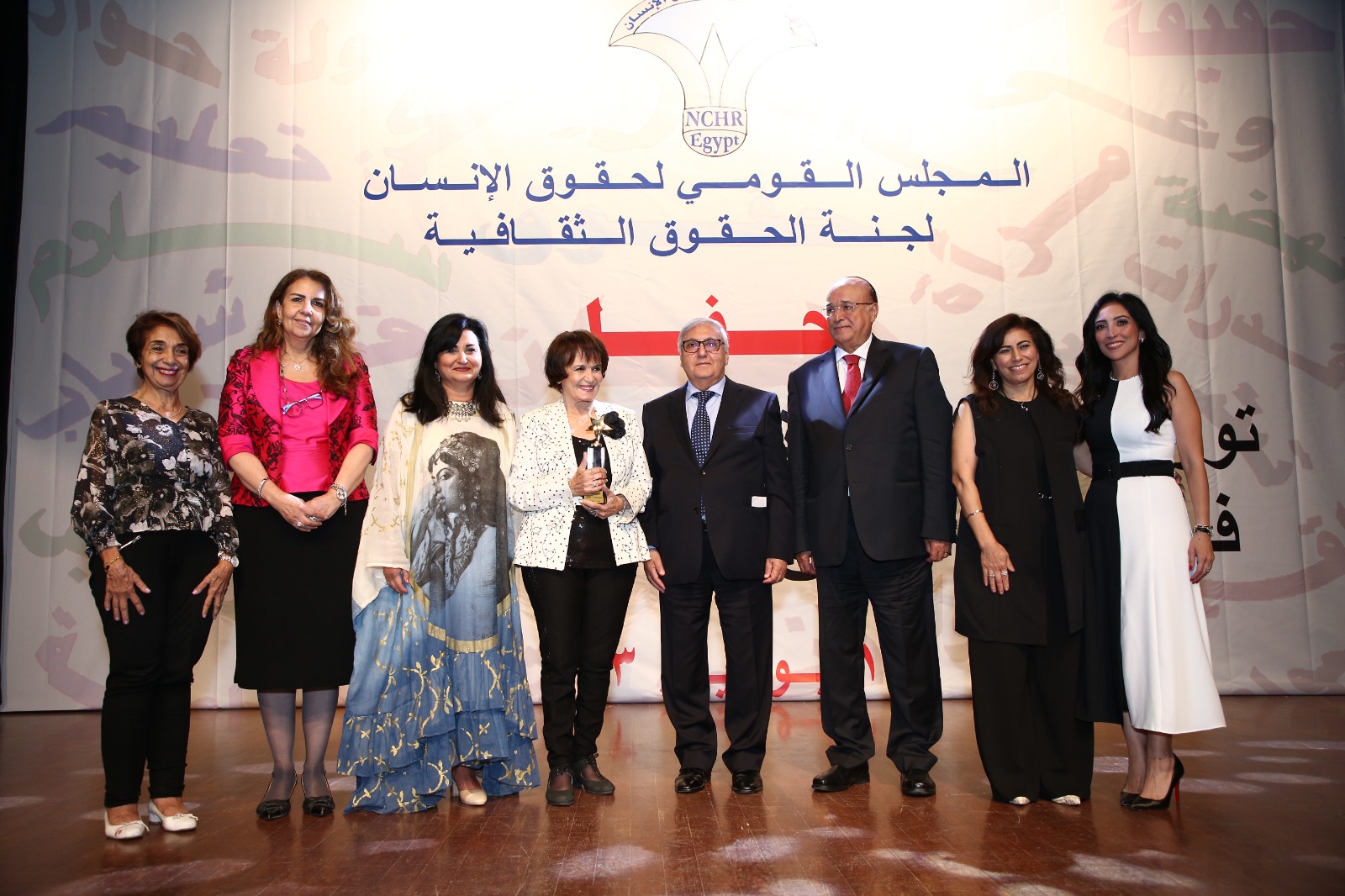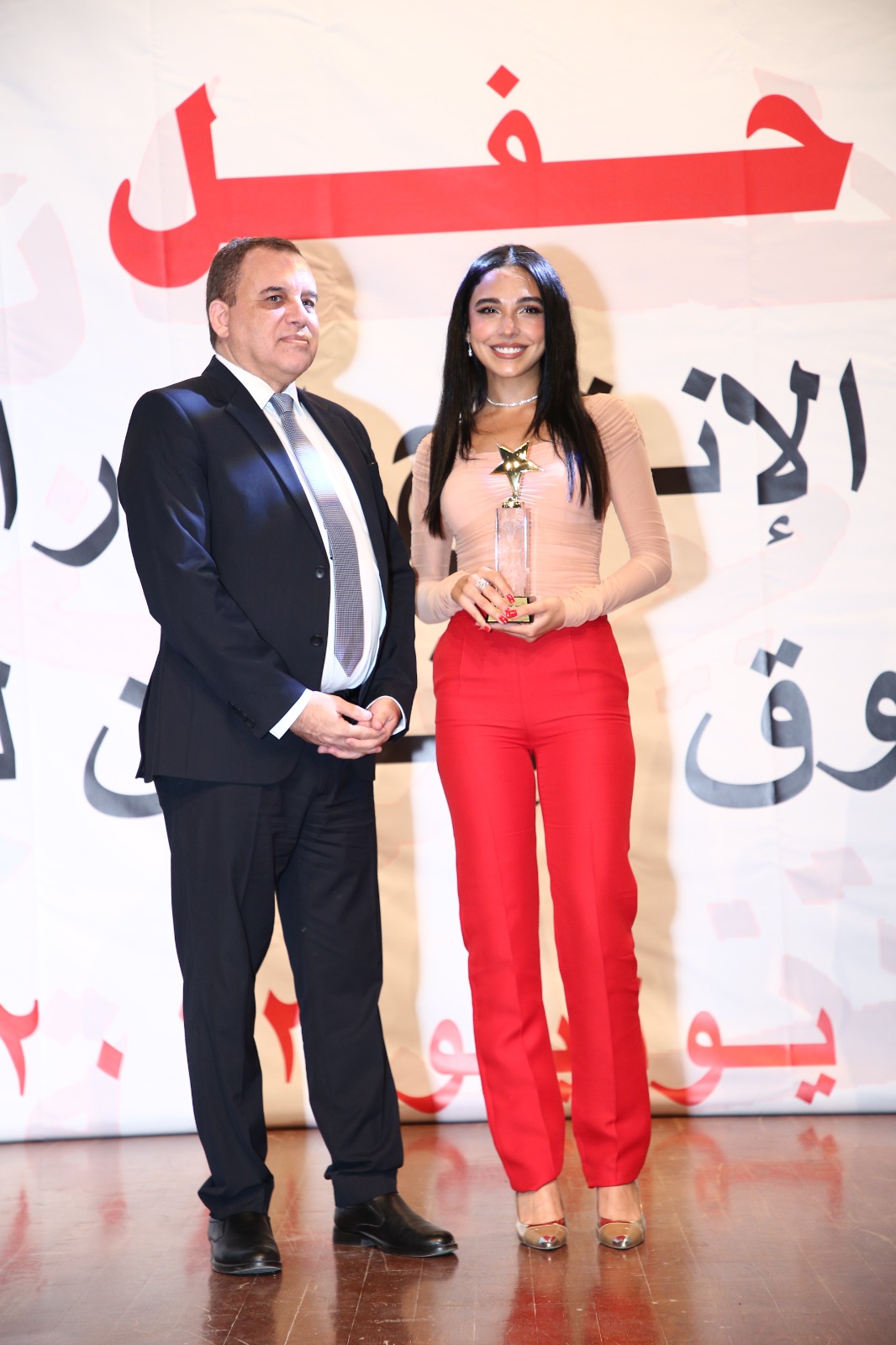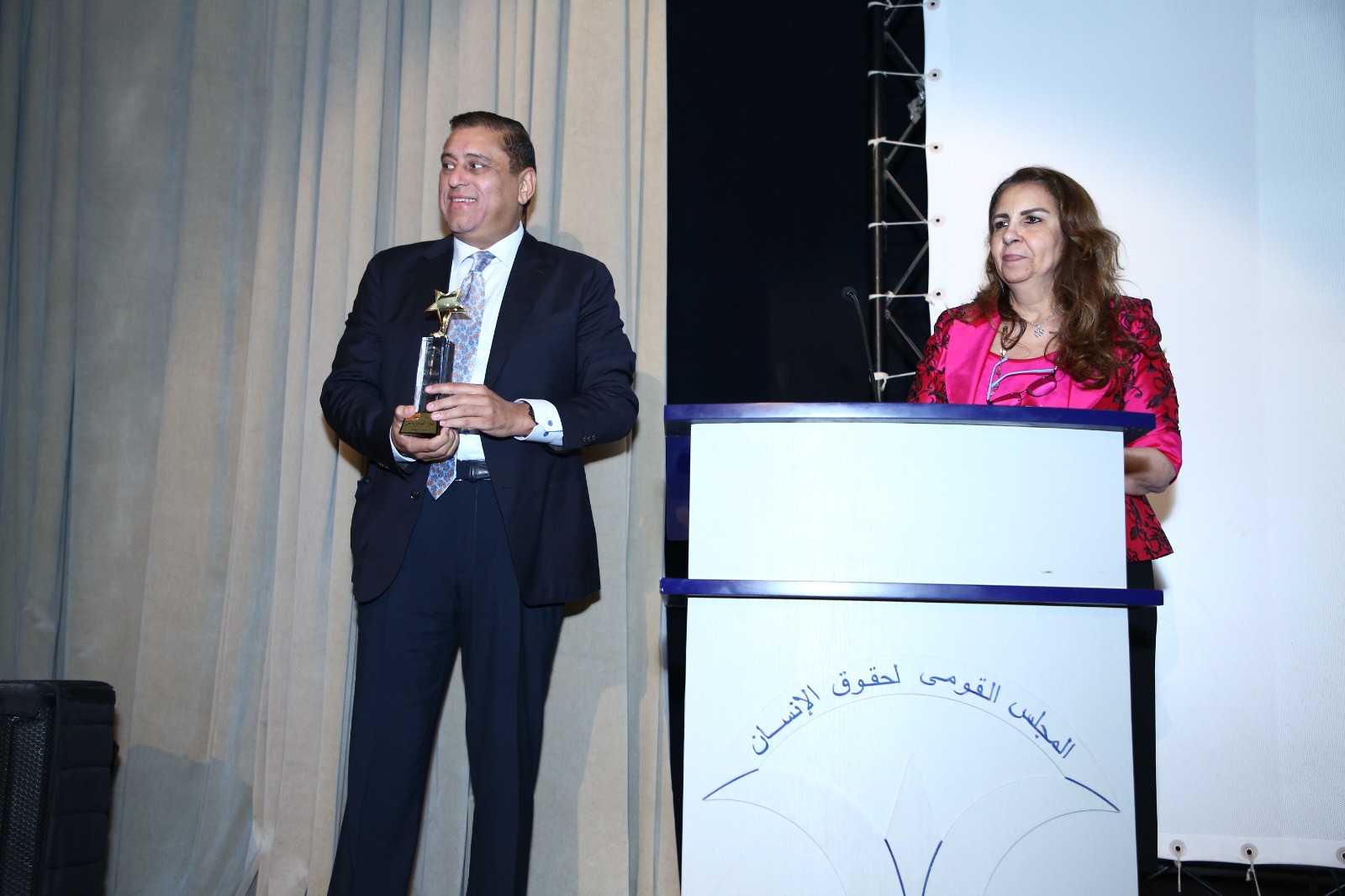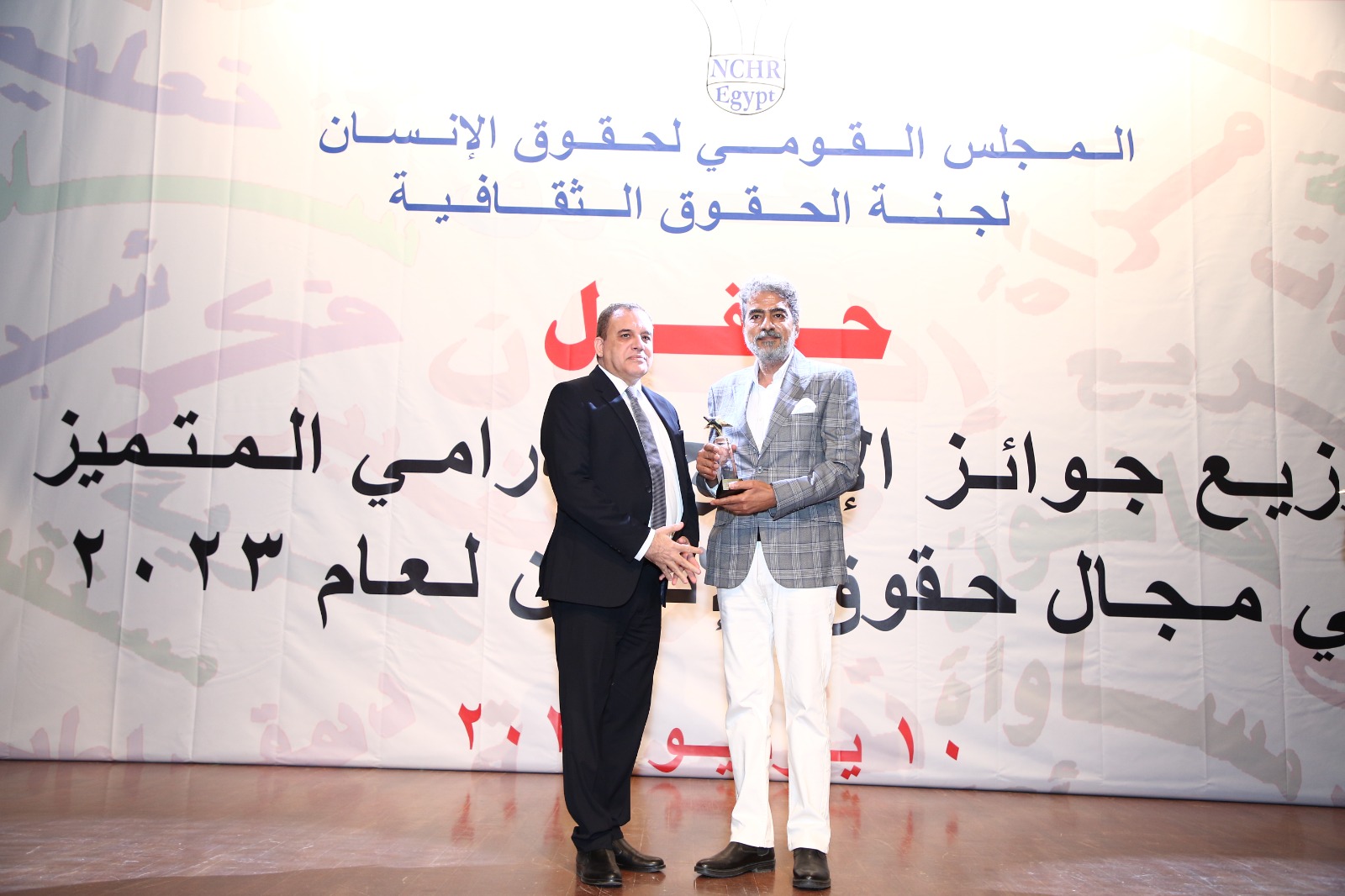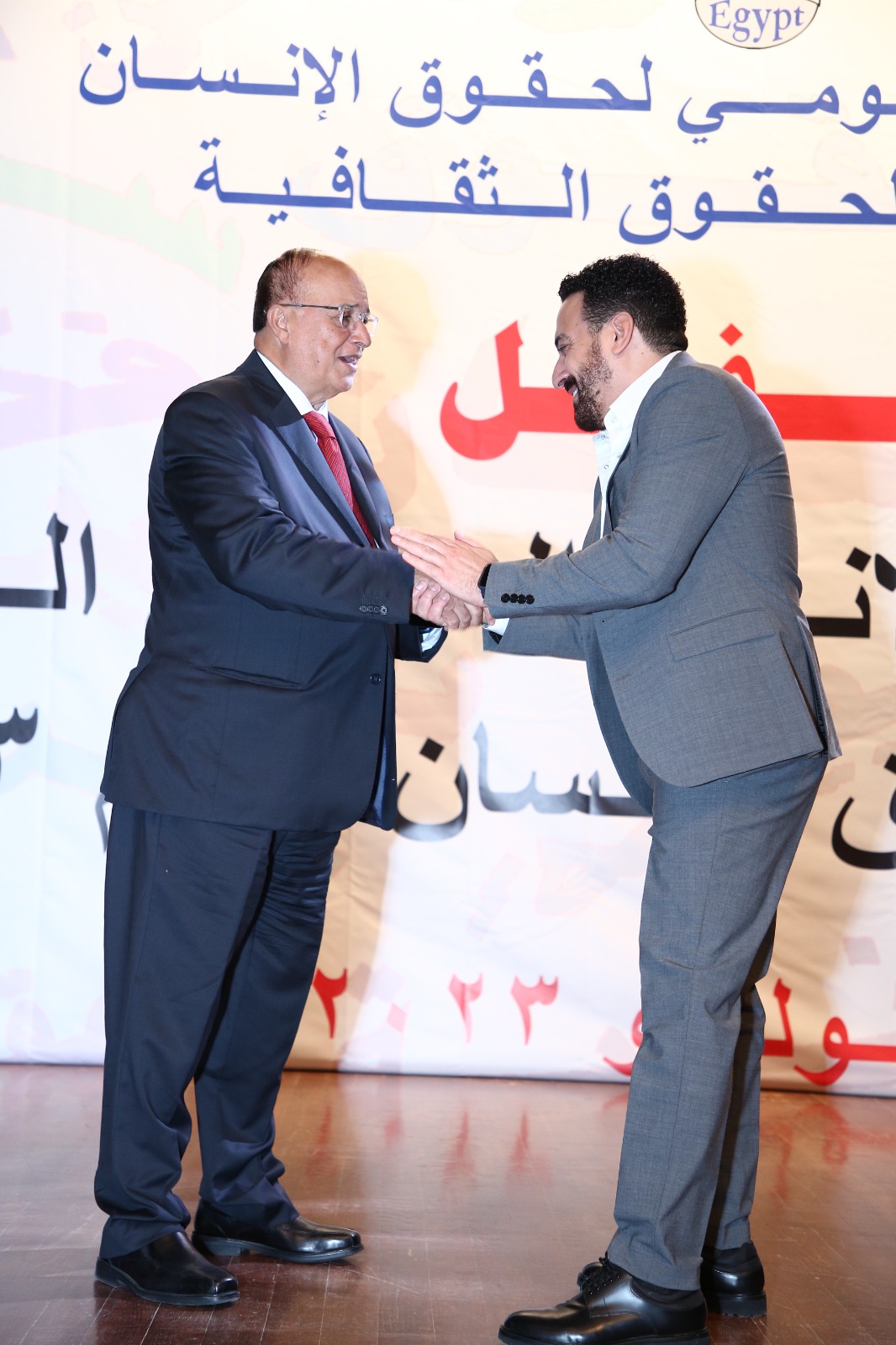The National Council for Human Rights honors the winning drama series with Excellence Awards
The National Council for Human Rights (NCHR) held its annual ceremony to distribute awards for distinguished drama production in the field of human rights for the year 2023 today, Monday, July 10, at the National Museum of Civilization, in the presence of a group of Egyptian and Arab art stars, senior public figures, senior writers and journalists, where five distinguished series were honored during the last Ramadan season, and the name of the late great director Nour El-Demerdash, and honoring the outstanding artist, Samira Ahmed, for her life-long great artistic career and her works that establish human rights values.
NCHR holds its annual ceremony to honor the creators of the artistically distinguished Ramadan dramas, which discussed issues closely related to human rights, for the twelfth year in a row to raise awareness of human rights principles.
At the beginning of the ceremony, Dr. Mahmoud Karem, Vice President of NCHR, delivered the opening speech. Dr. Noha Bakr, Chairperson of the Cultural Rights Committee responsible for organizing the celebration, delivered a speech in which she commended the direction of NCHR in order to celebrate purposeful drama that contributes to raising awareness of human rights.
Mr. Tarek Al-Shennawi, the great art critic, presented the speech of the jury, where he dealt with the reasons for selecting the winning dramas for the current year. The jury named the "2023 Ramadan Drama Awards" cycle after the late great director Nour Al-Demerdash in honor of his artistic career, in a tradition that the committee adopted last year for the first time since its establishment twelve years ago. Dr. Nevine Massad, a member of the Cultural Committee, said in presenting the Nour El-Demerdash Award, which was received by his son, the great media figure, Moataz El-Demerdash, that El-Demerdash: “A creator who carved a brand for himself in the history of Egyptian art, whether through directing or acting, as he is considered the spiritual father of Egyptian drama, and the laying of the first building block, which is an unforgettable cornerstone in the Egyptian drama path”. The speech dealt with the last works of Nour Al-Demerdash, which dealt with the issues of the homeland and the rights of the citizen, including the series (The Victim) in 1964, in which he exploded the issue of early marriage and its damage to society which dealt with fighting corruption and the corrupt, and also, the movie (The Price of Freedom) in 1967, in which he discussed through the film the issue of belonging to the homeland through redemption.
In honoring the distinguished series for the current year, three works won the unanimous opinion of the jury while they are: " Under Guardianship ", " The Message of the Imam " and "A Rare Coin", while the committee won the consensus award for the series “The Seventh Harsha (Seventh Year Itch)”, and the committee noted the series “Gat Salima (Arrived Safely)”.
Regarding the reasons for honoring the series "Under Guardianship", Ambassador Dr. Mahmoud Karem Mahmoud said that the series "presented the issue of legal guardianship and the woman's right to guardianship over her minor children, with a sophisticated artistic treatment with a well-established societal discourse, which was historically reinforced by the multiplicity of images of male domination, and also reviewed the woman's right to protect their legacy so that it is not wasted. Where the makers of the work were keen to focus on the right of women and children, which is considered the most important human right, and in a dazzling aesthetic way, he was able to discover new spaces and dismantle the overall popular awareness that manipulates women's rights, whether in protecting the inheritance of her children or her right to work, through a story that contains elements of fun and suspense and arouses the interest of viewers ". He added: "The series has also helped the series open the door to thinking, and to bring about a societal movement towards revising legislation in favor of a legislative amendment that gives women the right to guardianship over the funds of their minor children. Dr. Karem and Ambassador Fahmy Fayed, Secretary General of the Council, honored the producing company and authors Khaled Diab and Sherine Diab, director Mohamed Shaker Khudair, stars Mona Zaki, artist Diab, Rushdi El Shami, Khaled Kamal, Ali Sobhy, and emerging actor Omar Sharif.
Awards of honor were presented to the crew of the series "A Rare Coin". Ms. Samira Louka, a member of NCHR and a member of the NCHR Cultural Rights Committee, said in the reasons for the honor: "The series showed many existing loopholes in the personal status laws that prevent it from being passed on, calling for its change without getting involved. In loud and direct speeches, the work bet on artistic aesthetics as an entry point to address seemingly thorny issues. Louka presented the tribute to the producing company and writer Medhat Al-Adl, director Muhammad Jamal Al-Adl, and the star of the work, the artist Nelly Karim, the artist Jamal Suleiman, Ahmed Eid, Nada Musa, and Maryam Al-Khasht.
The series "The Imam's Message" also won the Dramatic Excellence Award, and Professor Izzat Ibrahim, a member of NCHR and a member of the Committee on Cultural Rights, said in the reasons for the honor that the series "drew attention to the model of the renewed jurist in Islamic history, and perhaps the choice of Egypt as a scene for most of the events of the series is not devoid of An indication that came with the aim of emphasizing the specificity of the Egyptian model, and insisting on it, whether in dealing with the presence of religion in the public sphere, and the images of coexistence and tolerance between all sects and religions in a critical historical period. The struggle for power remained. Ibrahim presented honors to the producing company, writer Mohamed Hisham Obeya, director Al-Laith Hajjo, artist Khaled Al-Nabawy, artist Arwa Gouda, artist Hamza Al-Ali, artist Salma Abu Deif, and artist Farah Bseiso.
The series "The Seventh Harsha" was also honored. Dr. Hoda Awad - member of the Cultural Rights Committee of NCHR in the reasons for selecting the jury for the series: It deals with women's rights, children's rights, and the impact of marital disputes on the psychological rights of children. It dealt with the highest value of dialogue and listening. The series also reviewed the right to choose a life partner Awad honored the producing company, the scriptwriter Maryam Naoum, the director Karim El-Shennawy, the artist Amina Khalil, the artist Mohamed Shaheen, the artist Hanan Suleiman, the artist Ali Qassem, and the artist Asmaa Jalal.
The series "Gat Salima" won the "Drama Excellence Award". Noha Bakr, Chairperson of the Committee for Cultural Rights, said that the series represents "a dazzling production and aesthetic adventure that brings back the audience to the show drama, and restores the traditions of popular comedy that is based on a fantasy approach to the world, and ravages many conservative traditions and systems through the mechanisms of sarcasm and sarcasm. Like creative works in our human heritage and closest to it" Thousand Nights and Night" work called for the adoption of great human values that promote good, truth and beauty, and work on formulating a new social contract that brings together the ruler and the ruled in a framework based on the performance of rights and duties, without getting involved in directness ... where bias came to instinct and intuition and seemed as close as possible to" A paean to simplicity "sings joy and takes sides with it without hesitation." Bakr honored the artist, Donia Samir Ghanem, and the director, Islam Khairy.
As announced by Dr. Noha Bakr honored the great artist Samira Ahmed for her great role in enriching our artistic history. Because of the variety of roles she presented through her distinguished artistic experience. Ambassador Fahmy Fayed said in the merits of the honor that Samira Ahmed is considered an artistic institution with a large cinematic record that exceeds 82 films, and a number of radio and television series with a large number of stars and pioneers of Egyptian cinema. He added, "The able star Samira Ahmed ... the Egyptian who began her distinguished career with his artistic signs associated with human rights and human thought in her role while she was blind in the movie "Most Expensive From My Eyes" in 1955 .. "Bridge of the Immortals" in 1960 .. "Qandil Umm Hashem" in 1968 .. Al-Kharsa in 1961 and the movie “Al-Shaima” 1972 directed by Hossam El-Din Mustafa, and other films that have become signs in Egyptian cinema, “Looking for Sayed Marzouk”, “A divorced woman”, “Two women and a man” .. and other wonderful works.
It is noteworthy that NCHR is a national organization established in 2003 with the aim of promoting and maintaining human rights. NCHR issues annual reports on the human rights situation in Egypt.





 English
English
 Arabic
Arabic
 French
French
